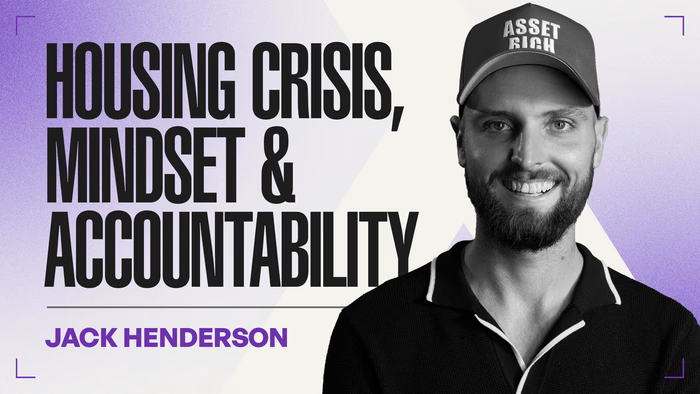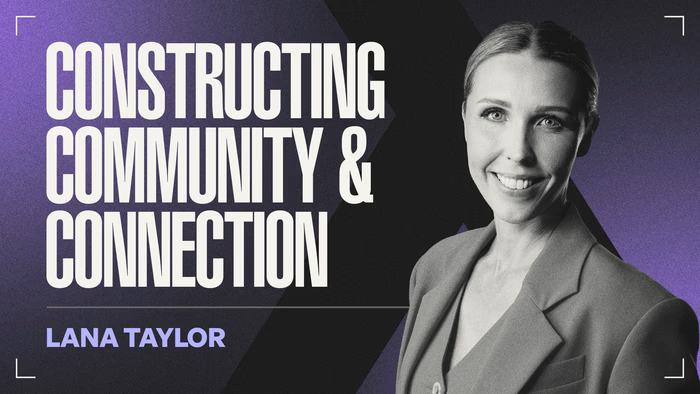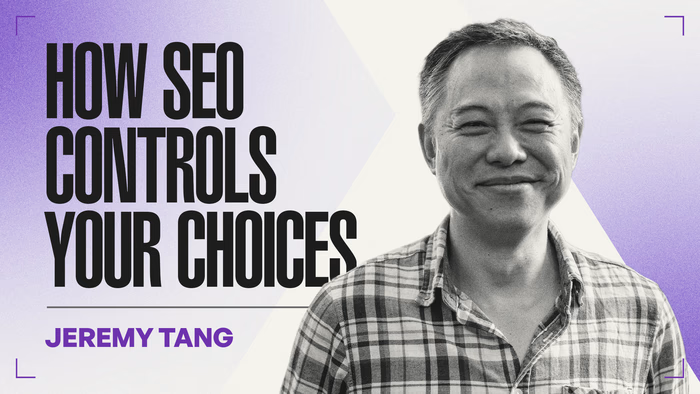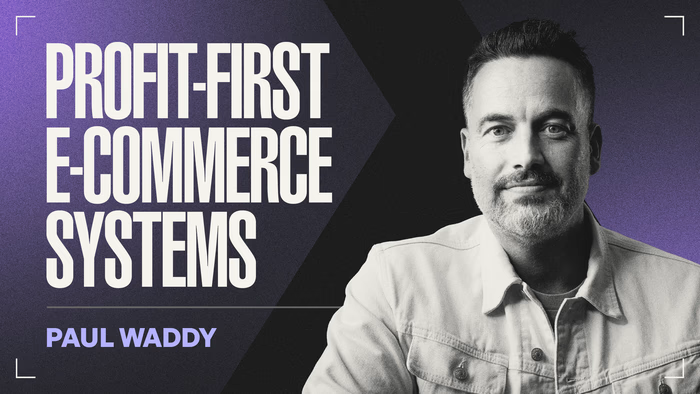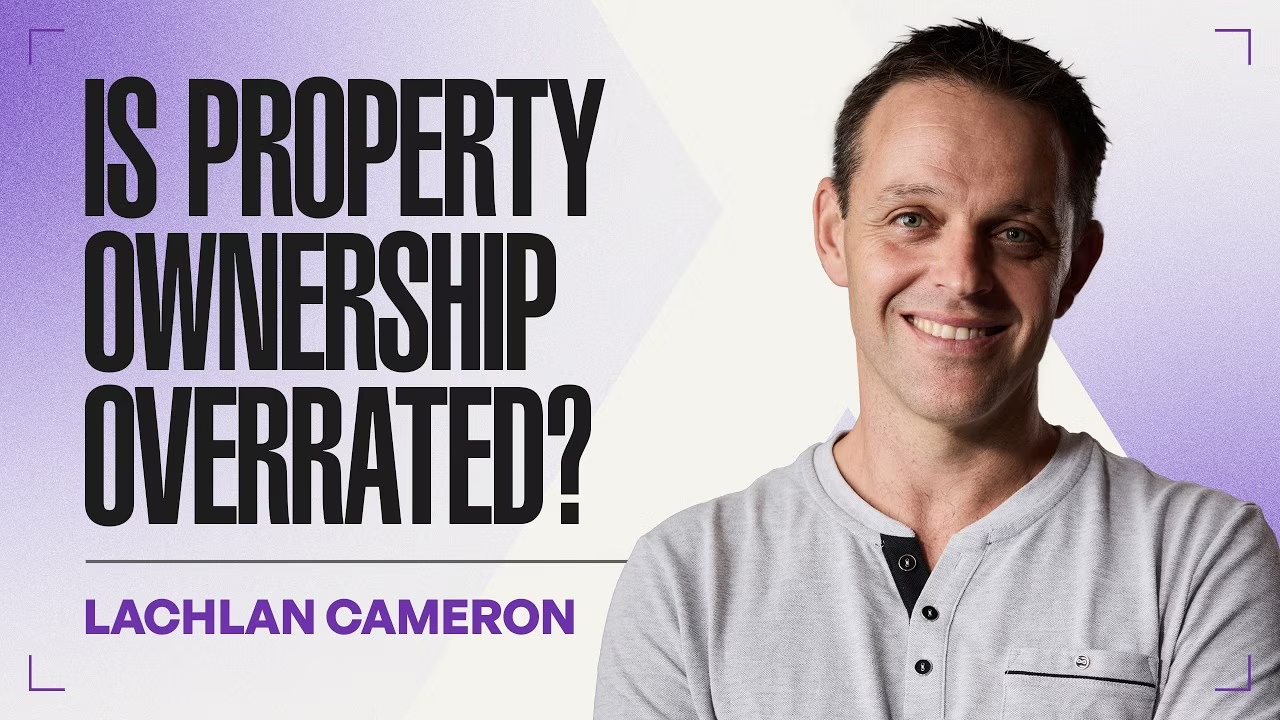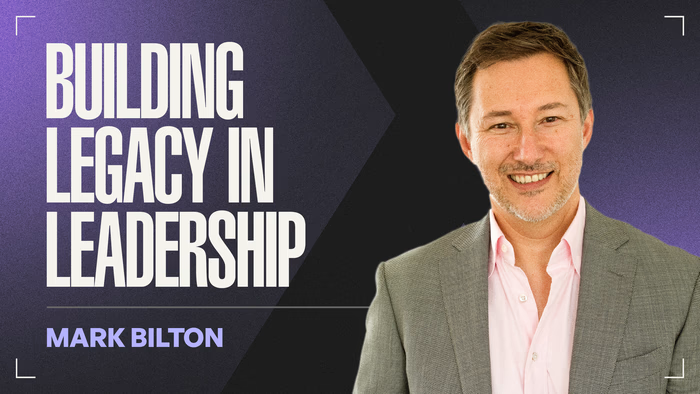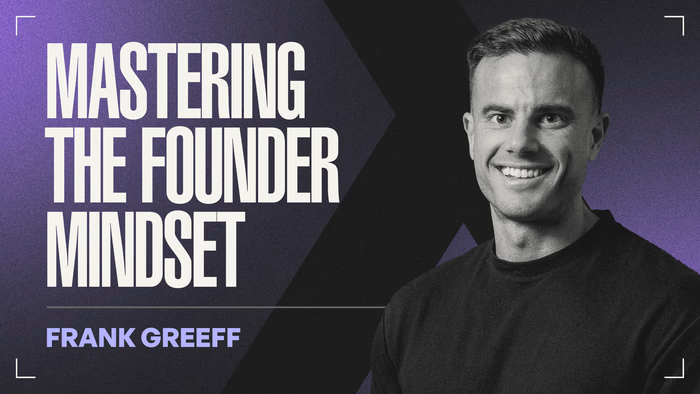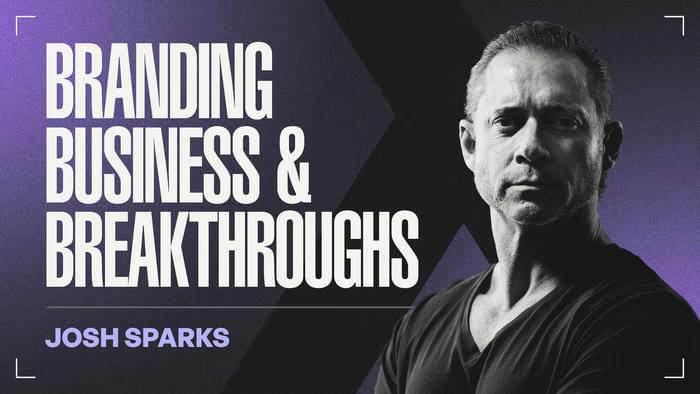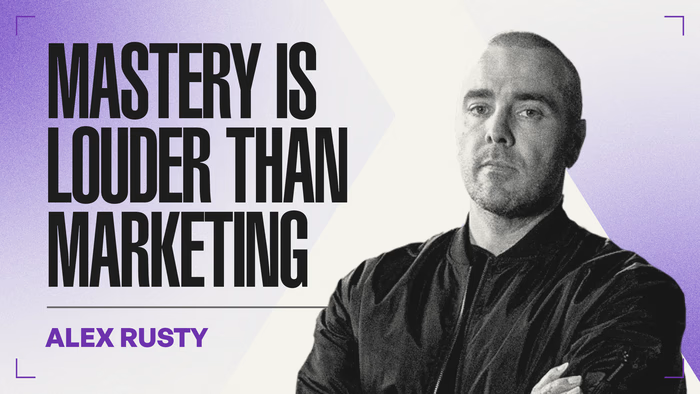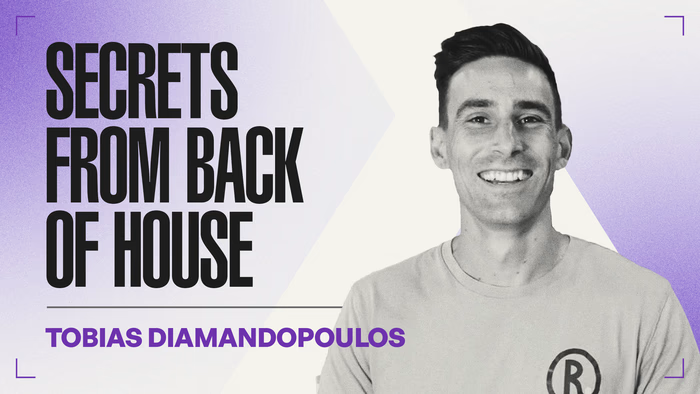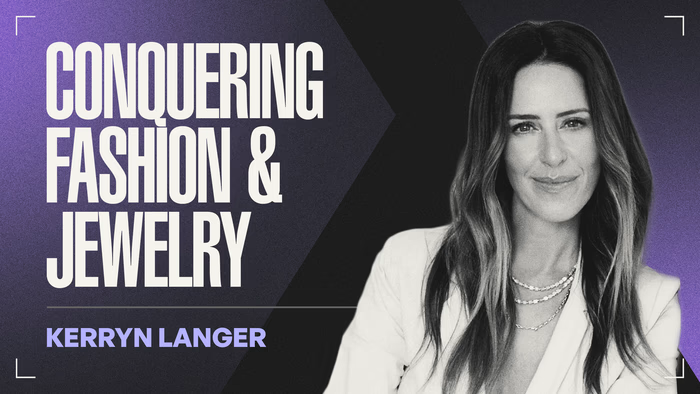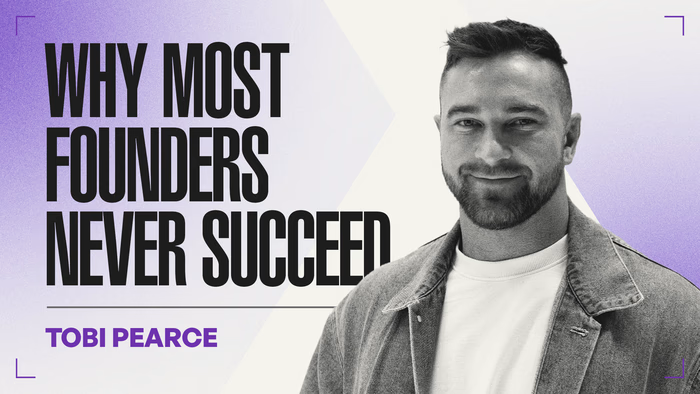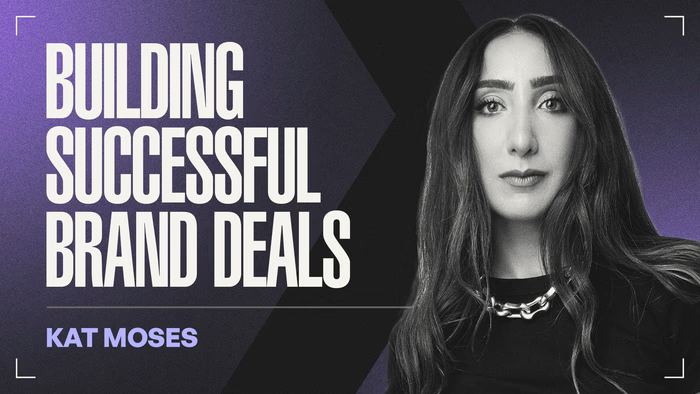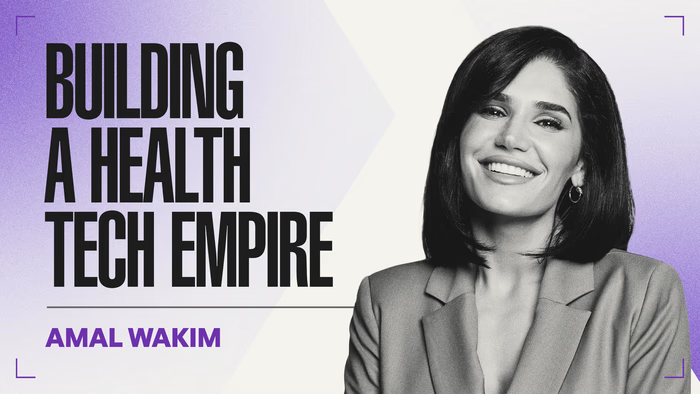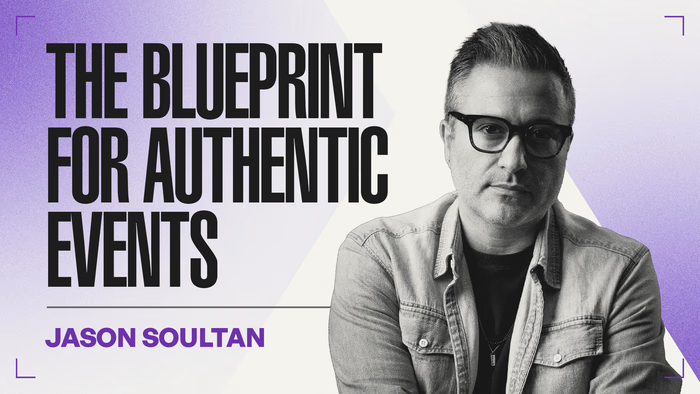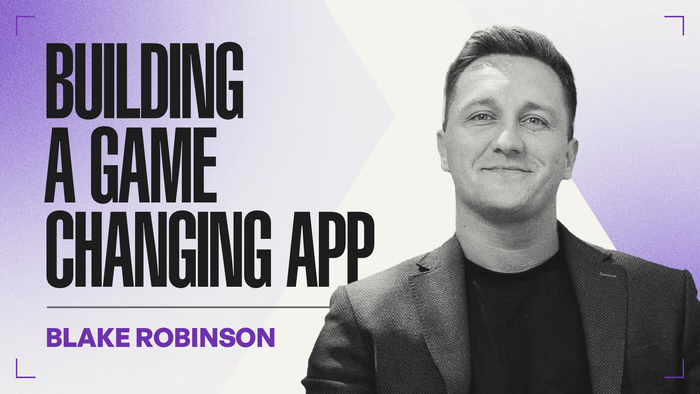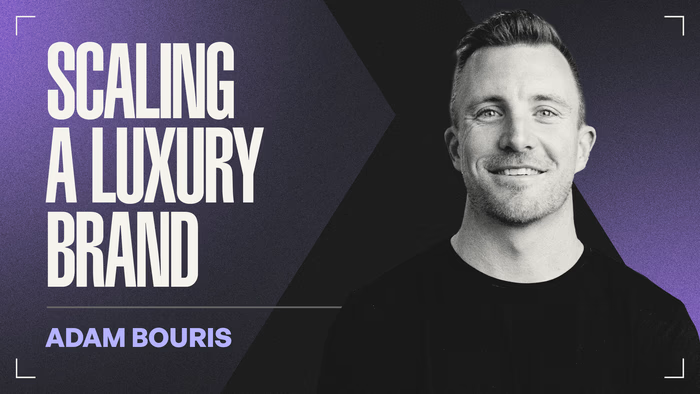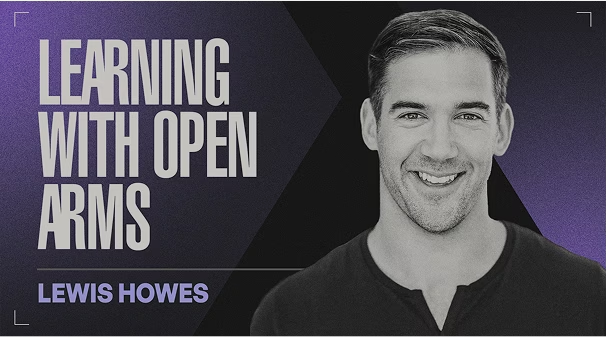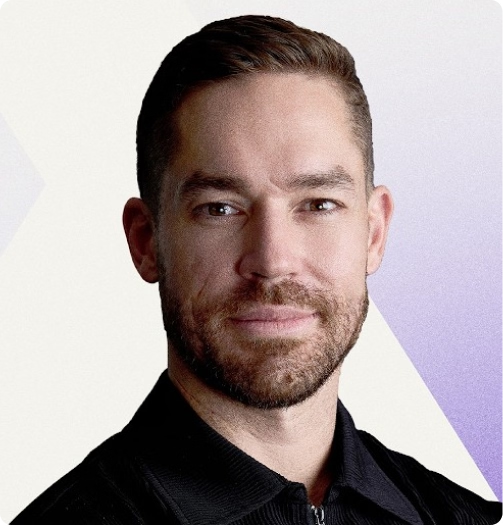


TLDR
Summary
The interview features Jaryd Terkelsen, co-founder of Beforeyouspeak Coffee, one of Australia's fastest-growing functional coffee brands. Jaryd details the transition of his brand from a niche fitness product to a mass-market player, emphasizing the role of long-term vision, calculated risk, and self-awareness.
The brand originated from the insight that "coffee is the one habit people don't skip." Jaryd aimed to build a product-based business that behaved like a media and marketing company (drawing inspiration from Red Bull), leading to strategic partnerships with Formula 1 and Jack Doohan.
Jaryd acknowledges that his early growth was ignorant and risky (selling only 12 units after ordering 10,000). Success then required a pragmatic approach, including extensive sampling at gyms and leveraging relationships from the sports nutrition industry. As the brand scaled, he learned that the challenges intensify: moving to mass retail (like Woolworths) introduced high-stakes inventory risks (200,000 units ordered two weeks before delivery) and required massive capital investment.
His personal journey saw him transition from an over-driven entrepreneur who sacrificed personal relationships ("three Christmases in a row in the office") to a leader focused on longevity and self-mastery. He realized his continuous unhappiness was tied to a limiting belief that "unless you're achieving, you're not worthy." His pivot involved prioritizing health, community, and enjoying the process over arbitrary financial milestones.
Jaryd's key advice for entrepreneurs is to develop a high standard of self-awareness, distinguishing between manageable challenges and unnecessary risks. He advocates for consistency over intensity and choosing to invest in relationships and experiences that bring fulfillment, rather than succumbing to the burnout caused by continuous, unsustainable sacrifice.
Highlights
- Market Insight: The core idea stemmed from the fact that coffee is a daily, unskipped habit—the perfect vehicle for adding functional health ingredients.
- Contrarian Marketing: The brand strategy was to emulate Red Bull (media/marketing first) but apply it to the habitual coffee industry, targeting niche communities like CrossFit before expanding.
- Scale Risk: Moving into mass retail (like Woolworths) requires taking massive risks, including ordering 200,000 units of product with minimal lead time and facing the risk of "free fill" clauses in the US market.
- Product Evolution: The business is constantly adapting its product based on retailer demand, moving from niche black coffee to full-dairy instant lattes to compete with mass market players like Nescafe.
- Mental Breakthrough: Jaryd was driven by the self-imposed belief that "unless you're achieving, you're not worthy." He achieved clarity by stopping work, moving into his warehouse office, and focusing on health and self-mastery.
- Longevity Strategy: Success is maintained by consistency over intensity and setting high standards for health, which provides the sustained energy needed for long-term entrepreneurial performance.
- Financial Lesson: His biggest lesson was learning that new businesses should not be chasing new ideas; instead, they should stay in their lane because time in market is the strongest competitive advantage.
- Final Ambition: He wants Beforeyouspeak to build a Global brand out of Logan, Queensland, and be remembered as a founder who "didn't cut corners" and did what he said he would do.
Transcript
00:00:00 - 00:01:08
The Australian coffee industry is valued at approximately 1.3 billion and it's expected to reach 2.2 billion by 2034. What did you see that made you think there's a massive opportunity here? I think Jaryd Terkelsen is the co-founder of Before You Speak Coffee, Australia's leading performance coffee brand. In partnership with Formula 1 and Jack Duhan, and with millions of units sold across 43 countries, Jaryd is redefining the global coffee game. Coffee is the one habit that people don't skip. If we
00:00:35 - 00:01:28
can add functional benefits into that, you actually feel a lot better than you would like just a regular cup of coffee. How do you get through those moments without feeling like you're rolling the dice? I feel like you kind of are rolling the dice. Lots of people look at investing into the stock market. If you bet on yourself, the upside is exponential. Desire as a contractor make ourselves to be unhappy until we get what we want. Three Christmases in a row I went to my office and I didn't go back and see my
00:01:01 - 00:02:11
family. Unless you're achieving, you're not worthy until I'd hit these arbitrary numbers that are made up in my head. I was never happy. Do any of those decisions still haunt you? And are there any regrets? Um, [Music] this episode is brought to you by Wick Studio. How do you even get in contact in F1? Because it seems like um, you know, a partnership like that seems like it's quite an exciting, sexy, cool thing to have happen. And because your coffee is all about performance, it's like the
00:01:42 - 00:02:32
perfect marriage. Yeah, 100%. I guess for us as myself, my business partner, the vision was always to try to get into Formula 1. I guess being a performance coffee brand where that's kind of the pinnacle of motorsport and high performance. So, that was the vision. Like we we actually spoke with Daniel Ricardo's manager back in I think the second year of business. I don't know how we would have paid for anything back then. We had no money. Um but we're we had the vision there. Um unfortunately,
00:02:06 - 00:02:58
he'd just left Red Bull at the time. Um and it was kind of too much of a conflict. he didn't want to kind of annoy anyone at the the team Red Bull there. So, but as the years passed, the brand kind of grew and it was just outreach. So, we reached out to Jack um would kind of we always kept an eye on the up and coming in the in the racing space as well and some of our other ambassadors had done work and kind of collaborated and we're mates with him. So, they gave us an intro and he loved
00:02:32 - 00:03:25
the product, loved the brand. So, yeah, it all happened fairly naturally which was cool. That's awesome, man. It feels like you're on the beginning of like your Red Bull uh arc, whereas like you've kind of created an epic partnership and I can only imagine when this kind of thing happens that you can potentially leaprog into the next partnership a lot easier. Now you've kind created an approved case of doing it. Yeah, I guess for us referencing Red Bull like in the early days we drew a
00:02:58 - 00:03:48
lot of inspiration for our brand like looking at them like being a product based business that had built themselves more as a media and marketing company than they had as a product based business. Like you think about Red Bull, you're thinking more so about the sports and stuff that they're involved in. So we really wanted to follow a similar path and I guess no one had really done it with coffee. Um there was no coffee brands that we drew any inspiration from. So that was kind of the vision for
00:03:23 - 00:04:24
us. Um yeah, getting involved with the guys has been a lot of fun so far. Still early days, but um it's cool. Hell yeah, man. I'm excited for you, dude. Now, I guess to dive in hot and heavy here, just to touch on, I guess, the category that you're in that you guys are now crushing. Um just to read out a stat here, it says that the Australian coffee industry is valued at approximately 1.3 billion uh as of 2024, and it's expected to reach 2.2 2 billion by 2034. Now, when you hear a stat like that, it seems
00:03:54 - 00:04:50
like your industry is definitely growing. Um, what did you see in the Australian coffee market um that made you think, you know, there's a massive opportunity here? Yeah, I guess in the early days, like the the idea for the the company came about, like I've always been very entrepreneurial and it was one of those things myself and my business partner, we'd always just kind of throw business ideas at each other. Um, so we both had a a background in sports nutrition. Did that for a little bit,
00:04:21 - 00:05:21
him more so than me. And I was a personal trainer for a few years, so I had a company in that space. But I'd be drinking like shitty makona every morning at 4:00 a.m. Um, and we were starting to see what was happening with things like functional green teas at the time. And also over in the US, um, Dave Aspbury and bulletproof coffee was starting to kind of trend. So you guys killed it. Yeah. Yeah. like having seen I guess what was happening in those spaces like well why is nobody doing it with all the other like vitamins and
00:04:52 - 00:05:39
minerals like there's there's such a scope for addressing different elements of health well-being and performance through coffee like coffee is just the one habit that people don't skip. So I was like if we can add functional benefits into that like we've got to be onto a winner. What was like the the clash of ideas? Because there's always like a like a strange moment like were you in the shower? Were you going for a walk? Or was it purely in that conversation you were having with your
00:05:16 - 00:06:10
business partner about like man performance coffee? There's something there. Yeah, I think probably a few things, right? So, I was like I used to listen to and still do a bunch of stuff with like Peter Diamandis. So, does a lot in longevity space um founder of like X-prize where they fund for the world's biggest challenges and stuff like very well connected. Um but he's got a few books and one of them is like if you want to build a billion dollar company like solve a billion person problem like find a product or something
00:05:43 - 00:06:42
that people are going to use daily habitually and for me I was like well always wanted to build a productbased business and I guess just having the insights of what we'd seen starting to happen in sports nutrition and like we were both coffee drinkers and we'd still mix things in our coffee ourselves like MCT oil and try different things like There was no product on the market that was kind of created ready to go apart from the bulletproof coffee, but that was kind of a more of a I guess trend in
00:06:12 - 00:07:07
the US, not in Australia, right? You'd seen a a bit of traction getting footoothold in the US market. You noticed you were naturally doing this anyway and then reading this book at the same time. Yeah. A clash of ideas. Yeah. I was like, let's have a crack at this. So, turns out people liked it. Yeah. There you go. Now, like the leaprog from that, like what was the first step? like did you guys have contacts in the I guess you know fuss you know moving consumer good category? Did you know
00:06:40 - 00:07:40
anyone that could manufacture this for you? Like how do you even catapult from the idea into Yeah. So we were fortunate in a sense where we had people in our network from working in sports nutrition to help us like reach out with manufacturers to get formulations like we kind of knew what we wanted in terms of a formulation just having a background in the space. Um, and then being able to leverage our network to get a manufacturer that was able to kind of produce the samples and stuff for us. Like we were moving through that process
00:07:09 - 00:08:10
pretty quickly. Um, which was lucky for us. So being able to leverage that. Now when you get an idea like this, were you guys confident from the very beginning or did the confidence grow over time? I think ignorantly, like just blind confidence. Yeah. Yeah. I was like thinking like cool we'll do this we'll be hundred million dollar company within a few years kind of thing. It was like we knew the coffee market was big right we knew people love taking supplements so I was like be the two this has got to
00:07:39 - 00:08:42
work. Um didn't quite work as planned but it still worked. I I saw a stat somewhere recently and it was like Australia is one of the fittest um nations in the world and second to that we have more gyms per capita than any other country in the world. So like being a nation that is so fitnessoriented and the combination of how much Aussies love coffee, it does seem like a marriage made in heaven. Yeah. Kind of goes hand in hand and we'd both obviously worked in sports nutrition. My business prior to before
00:08:11 - 00:08:59
you speak was a personal training company with my partner at the time and it was kind of in that gym influencer space. So we kind of had seen what was happening with Instagram marketing in those days as well and we had a little bit of a network that we could leverage. So I was like surely if we can build a consumerf facing brand that people connect with through coffee. Um and we did focus on those niches with health and fitness like the gym market like the fitness influencer. That's kind of where
00:08:35 - 00:09:31
we started and that kind of got us our early runs. But did you have any resistance from people at the beginning of you know kind of shifting their pallet to have a different flavor queue like what this product had? Yeah. I think like lots of trouble in the early days like even introducing the product to people cuz like you said it's like as soon as you say coffee with turmeric ginsing black pepper green coffee bean extract people like surely it's going to taste like [ __ ] Yeah, that was my
00:09:04 - 00:09:59
initial reaction cuz I would get my morning coffee from a a local brewer and I was like if I didn't have it I'd be cranky all day and I'm like turmeric like guys really and like even instant coffee was a dirty word back in those days especially with coffee snobs. So we kind of we definitely had an uphill battle. Um and it took us a long time like even like introducing it to retailers and stuff like interesting concept but surely not like surely this won't work. Um for us it was just heavy
00:09:31 - 00:10:23
on sampling in the early days cuz like I guess you guys tried you actually enjoyed the profile of like the flavor profile and stuff. I liked it. It's like it's it's a lot more pleasant than you expect. and it's like actually tastes really good and then you actually feel a lot better taking the performance coffee than you would like just a regular cup of coffee where you get a a bit of a caffeine hit and then you kind of peak and crash. Now for anyone that's looking at getting started in that space cuz
00:09:57 - 00:10:48
I've got friends and people I know that are trying to get their samples and their products into the market. What exactly did you do to start getting market penetration through sampling? Like what exactly did you do? How did you do it? Where did you do it? And what's the strategy behind sampling? Yeah, I guess like exactly like you said, we kind of chose who our audience was and it was kind of the gym in the fitness space. Again, what we did have I guess our network in that space a little
00:10:23 - 00:11:14
bit as well that we're able to leverage. So lots of the world gyms um Anytime Fitness like we just turn up at gyms constantly and just sample product to people. So doing that especially there's only a couple of us at the start, right? So I was like just every week you're just trying to get to as many gyms as possible just sampling getting people to try the product like and that's when we started to get like really good feedback and then kind of cranked up from there. So walk me through the approach cuz I
00:10:48 - 00:11:43
can imagine that when you do that you might get a lot of resistance like come back later the boss is not here rejective kind of conversation like how did you navigate to get people to not only try it but then to consider actually stocking it on their shelves? Yeah, I guess we we were fortunate in the early days with some of our relationships. So, both Ash and I had worked for Australian Sports Nutrition back in the day. So, as a brand, we actually wanted to be an e-commerce only brand to begin with. Like, we didn't
00:11:16 - 00:12:12
want to go into retail like we'll build this like where our initial order was 10,000 units thinking like we're just going to crush ecom like things are going to go flying. and we know all these influencers and I think when we did the launch we sold about 12 units on the first night and it was like it was like [ __ ] we've got 9,000 900 and something units to move through still. How did that feel at that time? A little bit daunting to be honest. So yeah, we we like things trickled through but with
00:11:44 - 00:12:32
our relationships cuz we were starting to build some good hype just on Instagram and stuff. Um, we had the guys from Australian Sports Nutrition Nutrition Warehouse reach out and it's like, "Boys, give us your product." Again, they'd seen how things like the green teas and the functional green teas were going. So, um, that was kind of fortunate and we were able to leverage them a little bit to help us build the brand. Uh, but it was just a lot of knocking on doors to begin with. Um,
00:12:08 - 00:13:09
like you get plenty of nos, but I think that's a process with getting anything started. One of my friends, um, Greg Hagglland from Switch Nutrition, um, he he explained to me that, uh, he would load up his car with product and he would drive around Australia with a boot full and a trailer full of product and just grinding, doornocking, pitching, you know, it sounds quite grueling, but do you find that when you're putting in the energy to try to get um the initial adoption that it then, you know, creates
00:12:38 - 00:13:36
a market of uh, returning customers? Uh, I think so. Like I think it's like the more you can turn up and just have like those multiple touch points in niche communities, then you'll start to slowly influence like know Greg and the boys at Switch really well. Um Greg's a master when it comes to product and like doing seminars and stuff. Very knowledgeable. So I was like we he was actually like a sales rep for when we'd worked in sports nutrition and stuff as well back in the day. Um so it is it is a lot of that.
00:13:08 - 00:14:00
It's like doing talks at supplement stores like finding like through the supplement stores like is there local fitness groups and that are doing challenges giving lots of prizes and stuff for prize packs or like anything that they've got going on in their communities like how can we just give samples and stuff through any of their activations and stuff as well and add value. Now take me into social media. What exactly was the strategy and the play behind getting traction on socials? Um, I think in the early days of
00:13:34 - 00:14:24
Instagram back then, it was kind of just getting into the hands of fitness influencers. Like it was early, so it actually had a lot more influence than it would today on Instagram. So, it was really just brand exposure, getting people that had like we'd look for people that still had their own fitness community. So, those like personal trainers and people that would be adding value to their communities, like if they spent time building trust with their audience, their word holds weight. It's
00:13:59 - 00:14:51
like we would just get a lot of people that naturally love the product as well. So we kind of would send it out, they'd love it and it just became a bit of a natural relationship. It's like you just keep sending them product and it's like they naturally post on their stories and stuff and you'd start to get a lot of uptake from that. So that kind of compounded over the years for us. Yeah. So you learned early on that you had to hit retail uh and wholesale and socials and ecom all at the same time. I know a
00:14:24 - 00:15:23
lot of people struggle to kind of do all of these strokes at the same time. Do you feel like that is necessary? You need to hit all of these points simultaneously or do you think that you can genuinely just focus on ecom or just focus on retail? I think you can focus um on single channel and a lot of the time that may be the smarter move to begin with. If I was starting again today, I would probably just focus solely on e-commerce. I like the fact that when you do ecom, you you have all the data. So, so if you understand your
00:14:54 - 00:15:51
numbers of what it costs to acquire a customer, um, how that can kind of fund the acquisition of the next customer or what your customer acquisition cost payback cycle looks like. So, if I lose $50 to acquire the customer, if I can get them to buy the next two times, well, then I start to go into a profit. So, if you can start to get dialed in on your numbers, you can really start to kind of understand what you can spend at top of funnel with marketing and stuff to kind of acquire them and bring them
00:15:22 - 00:16:15
in. The tricky thing with retail is you don't have visibility on what's happening with their customers. You also don't have complete control of what they do with marketing with your product as well. So, you'll work with them to partner and try to build a strategy, but it's always at the discretion of them. So I was like until you get to a certain size, it also helps with the negotiations with retailers as well. Like the bigger our brands kind of built and the stronger our social channels,
00:15:50 - 00:16:51
the more we've been able to leverage that to get our foot in the door with bigger retailers as well. Okay. Now, with the research component to this, cuz once the numbers start coming in, that's fantastic. Um, did you guys have a fundamental approach to research around the marketing and where to spend your time and where to spend your money? No, I wish I had man. Yeah. Yeah, it was it was a little bit like that in the early days. Um, but a lot of it would still be through your traditional channels with
00:16:20 - 00:17:26
Google and Meta and stuff. Um, and then influencers. They've kind of been the pillars that we've really built it on. Things are starting to get a little bit a little bit more sophisticated now with going into retail marketing and stuff. um bigger partnerships, but early days it was just kind of just like throw it and see what sticks on the wall and kind of run with it. Now, do you look at it as that you entered the market with a product first um mindset or a brand first mindset? Definitely brand first. Um
00:16:52 - 00:17:54
I think for us we always had the vision like we wanted to connect through people in high performance whether that be um artists, athletes, anyone that's kind of pushing to do more through the brand and use coffee as the vehicle. part in saying that where we made sure we developed uh an amazing product cuz like brand and marketing like you know will get people to try the product but it's like if the product's not great they won't be repeat customers and that's where all your money's made.
00:17:24 - 00:18:27
Do you think that with the the business model like this because it's um you know something that people add into their nutrition stack or they add into their daily routine that it is I guess a benefit to having a brand like this if you can find a way to build a brand where it is a consumable it is e-commerce you know does does that have advantages over potentially other e-commerce models I guess depends how you want to look at it like it can also be on the flip side where you talk to supplement stores, right? And it's like
00:17:56 - 00:18:47
a lot of those guys like the core lines for them are like proteins and pre-workouts. So, we're just kind of more of a luxury item, but it's like if we can get to the right audience through them like not only like loving the product, but also connecting with the brand and if they are already kind of mixing separate things, which a lot of our I guess early customers and still some of them today, it was like they'll buy MCT oil and mix it in with their coffee. So, if we can provide a a
00:18:21 - 00:19:27
product that's kind of allin-one, they can do it within 5 seconds, um, that has a lot of upside for us. Why would you consider this a luxury product if it's if it's more of a coffee consumable? Uh, well, I think coffee is a a luxury as it is, right? It is like it's definitely the highest consumed beverage outside of um water, which is like it's handy for us. It's a uh it's a habitual product, but it's not something that people need in their routine. It's not like if you
00:18:54 - 00:19:54
don't have coffee, to be honest, if you don't have coffee, you'll probably fall asleep, but it's like it's not like a toothbrush, toothpaste, toilet paper, like it's necessity. It is still more of a luxury. Okay. And coming back to uh I guess leading your company with branding first in mind. What are some of the pillars or frameworks or thinking around that? Like how did you strategically roll that out into your team to say okay team this is our focus. This is how we're going to do it. Um what were some
00:19:24 - 00:20:28
of those strategies and how did you guys exercise them? I think at the core we wanted to build something that we were passionate about. So we knew if we did that we'd have longevity in what we're doing with the journey. So being in the health and fitness space um we would find people that inspired us that aligned with what we wanted the brand to be and partnering with them through whether it is uh sports or media or whatever that may be. Um, the vision was always kind of follow again like the
00:19:56 - 00:20:51
paths of the Gym Sharks, the Red Ball, drawing a lot of inspiration from that, but building it with a coffee brand because everybody drinks coffee. Um, and starting with like choose your communities to start with, like start niche and then kind of grow within that. Like, you know, everyone drinks coffee, but we can't talk to everyone at once. So finding like what's the subsegment of the audience, building authority in that and then kind of expanding out to that. So going from fitness influencers, then we
00:20:24 - 00:21:20
started doing a lot more in CrossFit, now we're doing more in Hier Rocks, now we're in kind of in Formula 1. It's like we're starting to kind of now go to the masses. Business owners, if you're stuck using one platform for every project, you're probably stuck in a growth bottleneck. More clients means more hires, which just adds noise and cuts into profits. To break the loop, you need flexible tools that don't stretch your resources. Wix Studio is a smart addition to your business toolkit.
00:20:52 - 00:21:59
Intuitive by design, your team can quickly master the platform and focus on the work that matters the most. Then keep up the momentum with a built-in management tool. a unified dashboard, reusable assets, and a Figma plug-in that turns static design into launch ready websites. With robust native business solutions like bookings, e-commerce, and events, you can take any project at any scale without the added cost of third-party plugins. Plus, Wick Studio is a lowmaintenance platform, meaning you can redirect the client
00:21:25 - 00:22:23
budget towards real growth initiatives. Think more value for clients, steady income streams, and stronger relationships. To get started, simply go to wix.com/studio. Okay. So then, you know, you would say that it would be safe to say that when someone's entering a market with a new category to focus on one key audience versus trying to go too wide too quickly. 100%. It's like, yeah, otherwise you're diluting your message, you're diluting your marketing dollars. um as a small team when you're starting
00:21:56 - 00:23:01
out, you just don't have the resources to do everything at once. So have a a clear message, uh clear benefits to a single audience to begin with and then build out upon from that. And how would you define the parameters of a clear audience? Um I guess understanding what their buyer profiles are. Um, yeah, creating maybe a few different buyer profiles as like what they like to do, what are their consumer behaviors, what's their lifestyle choices, how does this fit in and add value to that? Um,
00:22:27 - 00:23:30
focus on a few of those profiles. And it's test and learning and understanding like, well, which ones of those are actually naturally kind of starting to enjoy the product more um, and come back more as customers and becoming those raving fans for you. What were some of the biggest lessons you found in those profiles that surprised you? Um, good question. It's probably it's not always who you think it's going to be. Like you probably go into these uh when you're doing your marketing and planning, it's like you
00:22:59 - 00:23:54
have preconceived ideas of who your buyer profile is going to be. Um, but it's looking and listening to the feedback and the data and then like making decisions based on that for future products as well. Like for us in the early days, to be honest, like when we first made uh the performance coffee, the OG, which is our number one seller by far still to this day, this one here. Yep. Yeah. Um the first samples that we got, like we we didn't even like them cuz like we didn't drink coffee with a
00:23:27 - 00:24:33
sweetener in them. So I was like it was very new to Ash and myself, but we knew if we were making it for the masses, we needed to create a product that had a bit of a sweetener and stuff in there cuz we weren't making a product directly for ourselves. And then we went down a path where we thought, okay, the way to to grow this business is to just bring out all different flavor variations um across every product skew that we had. And the amount of dollars that we wasted because then people like we they weren't data driven
00:23:59 - 00:25:05
decisions. They were just okay. You get a few people saying, oh, I'd love it in this. And it's like while the feedback sounds loud cuz you might get one a week over the course of a year that's 52 people it's it's not enough to kind of build um a product based decision off because we ended up ultimately culling a bunch of those SKs as well. Do you find that as you've evolved over time that you guys get more shrewd on launching new products and that you've maybe created some internal rules on things we
00:24:33 - 00:25:49
do and don't do or mistakes we do and don't repeat? Yeah, I think a lot of it is for us now based on things really need to move the needle as you start to kind of get to a scale because you realize through your lessons the time and resource pressure it puts on the team if you do something and get it wrong. So for us understanding if we're to release a new product now, we need to get the the head nod or the AOK from some of these bigger box retailers that we're starting to push into. Um like these cans for instance,
00:25:11 - 00:26:22
like where it took us 5 years to get these right with the ice latte iced latte cans. Now we did a straight black one. Um so like no dairy, no milk or anything in there. And that's based of what we thought would work. Um, couldn't get the cut through into the market. We did uh one on oat milk. Again, couldn't get the cut through because while some stores and stuff like it was a trend in cafes and in the health and fitness community, maybe it wasn't at a mass kind of scale. So to do
00:25:46 - 00:26:42
those types of products, you need to be hitting certain certain margins to make it viable commercially to sit on shelf in retail. So with these guys, like they only want dairy based stuff. They're like al milks are dead now. So we've full we've gone full circle and we've gone back to like full dairy and we make decisions based on that because of the minimum order quantities and stuff that you have to go and do uh with some of these guys. It's too much of a risk on the business to get wrong. Yeah. And it
00:26:14 - 00:27:09
can be painful, I guess, to put all that time and energy in, launch it into the market, even though you have the retailer partnerships, even though you have a fan base and influencers, you can still have a product that flops. Yeah, 100%. Like we actually we we set up a manufacturing company and started doing them ourselves for a while. Um, when we're doing like the black coffee and we did that for maybe 12 months, it probably cost us $250, $300,000 down the drain. And then we quickly realized like
00:26:41 - 00:27:32
we're we're in the sales and marketing business. Like we're we're not product manufacturers. Like that was another challenge completely. Okay. So that that's fantastic, man. I think there's so many lessons in here and I I I find it interesting because a lot of people believe if they could just get the partnerships, if they could just get the influencers, if they could just have a brand, have the website, then they'll succeed. But you're saying still inevitably it does come back to having a
00:27:07 - 00:28:06
product that the consumers actually want. 100%. I guess at every level of scale has new challenges too, right? So, working with these bigger retailers, which is it's it's new to us. So, we've only been in Woolly's for 12 18 months with a few SKs. We're actually rolling out nationally this week with a full new product range for them. Oh, congrats, man. Thank you. Um something like the um the instant type or the Yeah. So, we've done I should have bought some here today, but it only had like one box of
00:27:36 - 00:28:30
each in Sydney. Um, so they're like instant lattes. Oh, okay. Cool. So they're nonunctional. Yeah. So they'll kind of sit on shelf next to Nest Cafe and Makona. And our aim is to start to steal market share from those guys. It's kind of pivoting from being niche in the health and fitness space to kind of going mass as well. But it's like at every new level with these guys, it's like it requires so much capital to invest in the inventory. I was like you need to make sure that it's going to work because
00:28:03 - 00:28:51
otherwise that's what sinks businesses. just not having the means or the capital to back it up. Yeah. And depending how you structure the deal, like if you you may have a sale of return in your clause, which means if the product doesn't sell, you'll have to pay for it to get back into your warehouse. And if you don't have the distribution through your other sales channels, like you've got hundreds of thousands of millions of dollars worth of stock that you're sitting on, that affects cash flow. That
00:28:27 - 00:29:32
puts people out of business. Did signing some of these contracts terrify you? We were fairly diligent in our process. Uh, so we made sure that we weren't going into something that could potentially sink us. And in saying that, like there's still always risk cuz the order volumes needed up front with someone like a Woolworths really high. They'll give you indicative forecasts, but it was like they won't give you purchase orders until a week out or two weeks out. So, I was like, with that, you've got best guess, go
00:29:00 - 00:30:07
work with the manufacturers and produce a shitload of product and then hope that they make the orders that they're going to make. Otherwise, like cash flow, you're you're in a tricky position. Are you kidding me? Two weeks? Yeah. For how many units? Um, opening orders 200,000 units. So, you're contacting your retailer and you're like, "Guys, two weeks, 200,000 units go." Yeah. Like, we're relying on them to give all like they will give indicative numbers based on units per
00:29:33 - 00:30:23
store per week and how much inventory they think they'll need to hold. And then you've just got to go make sure you've got enough in your supply chain with your manufacturers. Because one thing you don't want to do with Woollies or your Coohl's is run out of product and not be able to supply them because you get a couple of strikes against your name, you're out. So I was like, you kind of need to take the risk, but I was like with that risk like there's a lot of cash tied up in producing those
00:29:58 - 00:31:03
products. That's crazy scary. It is. It is like it creates some sleepless nights. You're like business is going well. We're 8 years in, but there's still nights even as of recently. We're just like, how how do you get through those moments without, you know, feeling like you're rolling the dice on your entire empire? Um, I feel like you kind of are rolling the dice. Like, we don't really have a choice, man. All those dice. Yeah, you you can still be a good brand and sit at a
00:30:31 - 00:31:31
certain level, but I was like, I think for where we want to get to at every new level of business, like there's just going to be these risks, especially inventory based business, it just requires so much capital up front. It's like you think Woolworths has got,00 here. So, I think we're in we're rolling into about 900 of those um just based on their space planners and stuff. doing that over in somewhere like the US like Walmart's got 10 or 11 thousand doors and like they have a a free fill with a
00:31:01 - 00:31:52
lot of the stores which means you put in product for free onto shelf for the first orders and you only make money once they order again. I'm sure there's different clauses with different retailers but there's even more risk going over there. Free fill. I've never heard of that. Yeah, we we don't do it here in Australia, thank God, but it is big in the US and because they've got so much buying power and it's like if you want your brand to grow and be in there, again, it's the risks that you have to
00:31:25 - 00:32:33
take as a product based business um to make that happen. So, brands in the US are doing what you call free fill, which is we have 11,000 stores. We want to stock I don't know what is that 40,000 units. Well, maybe 400,000 units and brands are just paying for that upfront at a chance of making it in. A lot of them will. Yeah. Yeah. And it's it's not every retailer, but it's definitely like we've had conversations with multiple retailers over there. Um like your Whole Foods, like your Sprouts. Um it's
00:32:00 - 00:33:00
certainly the case with these guys. And if they sell the units, did they keep the profit? Yeah. Yeah. And you make you make the dollars on the reorder. So like I I had conversation uh probably towards the end of last year. I don't know if you've listened to or read the book How to Build a Billion Dollar Brand from Radic Ali. No. He was so he came in and was the CEO of Swiss Vitamins. Okay. Took them from Massive Brand. Yeah. Well, he he came into them at 2008. They were doing around 16 mil revenue. Took
00:32:29 - 00:33:38
them through to an exit in I think 2016 2017. uh they were doing 550 million revenue at the time and they exited for 1.7 they sold about 70% of the company the rest 12 months later at 2 point something um valuation so it's like listening listening to his book he talks around a lot of these problems that they had growing Swiss and like all similar channels right um now they may have slightly different margins compared to what we're doing with coffee but the principles s kind of remain the same.
00:33:04 - 00:34:04
And it was interesting learning from him and one of the things that he said was to enter one of those markets to do it properly, put aside $50 million. What that's the cost that they would invest to launch brands into the big markets being China or the US. And I'm sure like you can do a level of that that's lower, but it's like it's hard to dabble in those markets if you want to do it really well. That's crazy to me. That that seems like a poor way to run business ethically.
00:33:34 - 00:34:25
Well, you you got to be doing some big numbers to do that properly. Holy crap, man. I think that's a like he's talking to go far and wide, going to all the top retailers at the same time doing big promotions to kind of build the brand, right? So, like if you're like a Red Bull, these guys are throwing big big money at trying to get themselves into retailers unless they're a draw card and there's a reason why that retailer would want the product. Well, Red Bull a lot of the time they're like a Coca-Cola.
00:33:59 - 00:34:48
They own the fridges up the front of like a lot of these stores. So, they're they're putting like top dollar into these places, right? So, they're buying the fridges and then the retailers pay for the stock. Yeah. Okay. I didn't know that. Yeah. Yeah. So, like Coca-Cola own most of that space and then they'll kind of guarantees them x amount of skews, but they're paying for that, right? But also the volume that they do with those brands, it's kind of a given for them.
00:34:23 - 00:35:18
So, it's like you're then competing with X amount of shelf space that they have available per range review that you need to try to get one or two or three facings with your products in. I can see why you have this perspective of like, hey, we're pretty early in the game despite the size and the caliber of your business. You're looking at this next league, this next, I guess, um, system of business and going, okay, that's that's crazy 100%. And that's the level that you're trying to get to. Yeah. So
00:34:51 - 00:35:57
with the new products, for example, the new instant latte SKUs, so coffee category in Woolworths is worth roughly 6 to 700 million a year. Now those instant latte products that we're doing alone, that portion of the category is one of the biggest. They're about $150 million a year. So for us, we're now and like it's completely owned by Nes Cafe and Mona and Nes Cafe owned Makona. So I was like it's kind of a monopoly in that space. So I was like we're trying to come into the category to steal market
00:35:24 - 00:36:14
share. Looking at that it's like you need to start to build like you need enough shelf space. So four SKs it'll give us enough presence. It's then working with these guys to make sure that we're getting uh the facings like the promotional schedule right. Like all of the above the line stuff that we're doing to kind of build the brand and drive people in there will get like the hurdle rates in those stores. So we're hitting minimum units per store per week. And then if we get that right,
00:35:49 - 00:36:46
like come the next range review in October where we'll hopefully be able to open up and do beans and pods and become a full category solution. So it's just kind of step by step when you kind of start to move into these bigger retailers and there's definitely a lot a lot of risk. So if we don't get it right, it's like well they'll get pulled back off the shelf and you're back to square one. You reassess everything that you're doing. So a long a longer term view is
00:36:17 - 00:37:19
required. There's a book uh that kind of speaks to this a little bit. Have you read Marty Numay's books? No. He has a book I I think he's got four or five books. I think it's in one of them. It's called the the brand gap. And he says that there's three types of companies. Scissor companies, paper companies, and rock companies. And his analogy was rock companies are these big boulders that you know like a Nest Cafe that have been around for maybe a hundred years and they dominate categories. They have a
00:36:48 - 00:37:44
monopoly. They're making all the money they could possibly want. Why disrupt or tip the boat so to speak? But to make any changes, there's red tape bureaucracy intergenerational families that own the business too much to move quick enough to keep up with the market. Then he says the paper companies are kind of like the upandcomers like yourself that are like wrapping around the boulders and suffocating them uh one category at a time. And then the third is the scissor brands. They're kind of
00:37:16 - 00:38:09
like you know 10,000 of these popup online stores that are all kind of attacking the same category at the same time and like one of them isn't a threat but 10,000 of them together is a threat and they're snipping at the paper companies while the paper companies are wrapping around the boulders and then the boulders are trying to crush everyone. So like his analogy was like the advantage of a brand like yourself is that you're as a paper company nimble and fast enough to adapt um relevant
00:37:43 - 00:38:49
enough to connect with people's communities but have a little bit of capital, a little bit of support, enough relationships to kind of get by. Now, with all of that being said, looking at your company the way it is now, if you have runs on the board, what's the biggest danger for a company of your size and things that you guys are trying to be aware of so that you can keep growing and not get stagnant and stuck or go backwards? I think there's definitely a risk. Again, the volume is with the the bigger
00:38:16 - 00:39:13
retails. Like if we're if we're talking around the next phase of our growth and going mass, the risk probably sits with what we do not only with them but with the products as well, we need to make sure as we're bringing out products for the mass consumer that's not specifically niche health and fitness that we don't go off-brand and completely lose touch with our audience as well in the process. Um, we've been on a little bit of that journey. A few years ago when we first went into
00:38:44 - 00:39:43
Priceel Line to put in a CEO, like we stopped talking to our consumer as we did as a brand. And we're like, well, Price Line's massive, I guess, middle-aged female audience a lot of the time. So, I was like, we started doing collaborations differently. We started talking about products differently. And I feel like I would look at our social media after a while and I was like I don't even want to look at our page. I was like I don't find it exciting. Like it's not who we set out to be as a
00:39:14 - 00:40:13
brand. So we kind of lost our way a little bit. And I guess through that we kind of learned what we didn't want to do and which path not to take. But I think as a brands go like it's very easy to be influenced by the size of the prize with some of these big retailers that you might be working with and then what they may want may not totally align with what you want to do as a brand but you need to kind of find middle ground so you're still true and aligned to what you're trying to build as well. So what
00:39:43 - 00:41:03
exactly happened? Like why is it that putting in uh a new leadership team veered the brand in a direction that it probably shouldn't have gone into? And how is it that you I guess gradually went off brand? What exactly happened? So through the process I guess most of it I was driving all the brand marketing in the early days when we put in a CEO. I kind of took a step back and we she structured more of a a marketing team and I guess the marketing messaging and how we spoke to our audience, how we positioned the brand
00:40:23 - 00:41:22
going into like your price lines and stuff. We just lost touch with what we'd done to get us to that point in time. What exactly did you did you lose? The influencers that we would work with. Um to to give an example, we would use I guess a lot of health and fitness influencers that were kind of up and coming um putting out fun content. We stopped working with a lot of them. We signed Commando Steve. We switched at agency who were using at the time cuz I was still doing like uh we've done a lot
00:40:52 - 00:41:53
with Jay Wright and stuff e-commerce. I was kind of I was kind of one of his early clients um along with like Jace and LSKD back in the day. Jayce referred me to to Jay actually and then we were working with Jay and the team and then when the CEO came like oh we've spoken to these guys they do a little bit more in retail now that we want to do more in retail so they dropped them we went with a different agency but nobody tracked what we're doing with the ad account or how that was being I guess the content
00:41:22 - 00:42:33
that was going through or the um copy and how frequently the audiences that we're targeting and then we stopped doing a lot of email marketing and stuff that we do and the vlogs and just like the things that were kind of core to our brand and then again changing with the influencers. So I was like the three things that drove most of top ofunnel growth for us all got taken away and then they were like ah it's postco like maybe um functional coffee is just a trend like skinny me tea and we can
00:41:58 - 00:42:58
actually expect it to die or go backwards or maybe you need to be happy with like a much smaller business. Okay. Oh my god. How how did you feel? Because I guess you could make an a a reasonable argument as to why, you know, the market was shifting because it's postco. If I were a CEO at the helmet, it's like, hey, it's not it's not Commando Steve, it's it's the downturn, it's the market. You could you could drive yourself crazy assuming what it could be. Um, but at what point did you
00:42:29 - 00:43:40
start to catch on like, hang on a second, something's a miss here. I got to get back into figuring out how we can fix this. Yeah, they'll probably with us for bit over 12 months. Um, 6 months in, like we kind of we stepped back, right, and I said I started the other company and it's like we kind of needed to let them go all in. It's like we hired people with arguably like far more impressive regimes than ourselves. So, they come to us with the the experience on paper, the experience in startups, maybe not. So,
00:43:04 - 00:44:02
but we needed to give them the freedom to kind of run and do what they needed to do. We probably started seeing signals 6 months in that things weren't necessarily going in the right direction. Um, and then over that next 6 months probably continued to deteriorate and starting to see the revenue drop. Um, fixed costs were still way too high like we're spending in areas that weren't returning. Uh if we had to let it go on another 3 months, like we'd have been close to being out of business
00:43:33 - 00:44:46
just with cash flow. Were you scared? Yeah. Yeah. It wasn't a good time. Let's just say that. So So I understand it. What what seemed to happen from what you were telling me off camera was that the business started to go backwards. Um you know, revenue started to drop. Uh I imagine there was probably challenges across the team. You were off building another business. um you know while this is all taking place what were the first things in your mind when you decided I have to do something about this I have to get back
00:44:09 - 00:45:19
in front of this what was going through your head at the time it was fairly daunting bringing in people that were more senior and more experienced to us and looking at where the business was going and realizing holy [ __ ] like we need to do something quickly if we want this to still be intact in 6 months time. Um it gets to the point you need to make those hard decisions and just move them otherwise the alternative is you're out of business. Uh definitely a challenging period but it was kind of it was a
00:44:45 - 00:45:46
weight off our shoulders as soon as we done it. But then that's when the cleanup began. It probably took us 18 months 24 months to really turn things back around and start to get that market traction again. Had this not happened, how many years of productivity do you think your business lost? Oh, speculative. Like, it's hard to put a number on those things, but it was like it's hard to know where we'd be with momentum if things hadn't kept going. So, like we're at least doubling year on
00:45:13 - 00:46:22
year for the first four years. Um, that year that they were at the helm, we went backwards to Milan Rev for the first time ever. So it's hard to guess what compounding would have done but again the b business lessons that we got in the time and then we both had other ventures and stuff we were focusing on um which are also in the bin now um poured a lot of money down the drain over those few years but they'll probably like the the biggest learnings that we had. Now I heard you had a a stoic era around this time where you
00:45:50 - 00:46:56
went through your own metamorphosis in the background talk me through that. Yeah, like I think through that period like the B was starting to come good again. Um, but it was definitely wasn't coming easy. And then I had the tech company that I mentioned. So built a mobile selfch checkckout company and essentially if you know like Amazon Go over in the US like their a lot of their cameras and sensors but essentially we built a a mobile checkout technology where you could walk in scan QR code
00:46:23 - 00:47:30
scan any product barcode check out on your phone so it was pretty much like an e-commerce checkout. So the goal was to reduce queuing, not having to go to counters. Um we're probably 5 to 10 years early with the technology. So got a lot of interest from retailers, but we'd also put 1.5 million into the build of the software as well. So through probably early 2023, Runway was starting to shorten with what we had in the bank, and we kind of realized that nothing's going to change in the next 12 to 24
00:46:55 - 00:48:06
months. So making the tough decision to shut that business down, cut our losses was a fairly challenging period because a lot of the the money we took on board. So between myself and my co-founder, we put in half a million and then the rest was raised from a lot of people were kind of mentors and stuff to me as well. So that held weight having to have those going to have those conversations knowing that you need to tell them like hey you've backed me but I've lost all your money like I've kind of failed. Um
00:47:32 - 00:48:27
in my head it was a whole lot scarier than it actually was cuz these guys are a lot of them are sophisticated investors. They're like it's all good mate you had a crack we'd back you on the next one. Like really? Yeah. and a lot of them are quite wealthy. So I was like but getting to that point it was like it was a lot to to kind of get to that challenge there was a lot of sleepless nights. Um by the time where we pulled the pin similar time like I went through a breakup with my relationship as well. So I was kind of
00:47:59 - 00:49:17
dark days for a little bit there but I really needed to reenter and just kind of look for answers in different areas. Um, I was always very driven around just making money and I was always, I guess, future pacing or never being able to be present and enjoy the moment or enjoy the journey cuz I was never far enough along from where I thought I needed to be. So when you start looking for answers elsewhere, um I had a few big realizations and a lot of that was around um choose my words. Um, I think
00:48:44 - 00:49:55
childhood trauma, not childhood trauma, like you kind of take lessons growing up and whether consciously or subconsciously that ties into how you make decisions with things. So for me, I had a realization that a lot of what I was doing was to receive love in a sense. So it's like rather than being unconditional, I took a rule where things were conditional where I was like I need to always be achieving. And it's the same for a lot of high performers, right? There's always a chip on the shoulder
00:49:21 - 00:50:31
that is like unless you're achieving, you're not worthy. So I was like unless I was having big wins, I would tie that to my self-worth and what I was doing um in business and life and stuff. So I was like until I'd hit these arbitrary numbers that had made up in my head, I was never happy. And I think something like one of my favorite quotes is like Naval um you familiar with Naval? I love him. Yeah. Yeah. I was like desire is a contract we make with ourselves to be unhappy until we get what we want.
00:49:56 - 00:51:11
I was like I heard that and I was like so true cuz I'm always everything's around once I hit this. It's the same story for many entrepreneurs, but needing to shift that to actually, hey, I don't need X amount of dollars in the bank. I don't need to be making X amount of revenue shift on what my drivers were. And that's kind of now as long as we're growing and as long as I'm enjoying myself. So, for me, I just shut everything else out. I um I mentioned to you I moved like uh we moved out of the
00:50:33 - 00:51:29
house we had at the time and I just moved like in into literally my office for before you speak like where the tech company we had built an office in the back corner of the warehouse. I moved everything in there like the regional plan was just to throw my stuff in there cuz I was going to barley in 3 weeks which is my first holiday in seven years as well. So I was like I need to start enjoying life a little bit more. So I was like if I had have lost the tech company end before you speak I've just
00:51:01 - 00:52:05
spent seven to eight years working not doing anything else sacrificing a relationships. I think three Christmases in a row I went into my office and I didn't go back and see my family. So there is nothing that needed to be done on Christmas day that kept me there. But I was like that was that would be a story that I would tell myself. So I was like I would sacrifice spending time with friends or even having I guess social connections and relationships because I would tell myself I needed to be in the office and
00:51:34 - 00:52:30
if I'm not in the office I'm not being productive which wasn't true at all. I think as a a business owner you need to find what works for you and what allows you to move the quickest. Um and that's not always just working hard. It's like finding those areas to have breaks as well. But for me, I um I threw everything in because I was going to Bali and I was like I had a bunch of other travel and I was like then I just made it way too comfortable. So I had um like we had a full gym set up in the
00:52:01 - 00:53:00
warehouse, had a sauna like the guys got like the photo studio and stuff in there. So I was like zero minute commute time. Like I was training daily. I think I went 6 months without missing a single day of training and probably went too far in the other direction. um sauna every day. Like I didn't go on a single date for 18 months and I was just kind of locked into business and health and fitness which was probably what I needed at the time. But it also proved me as like I don't need to live a fancy
00:52:30 - 00:53:41
lifestyle like I thought I did. It's like that kind of gave me a lot of power as well. It's like now I can make decisions based on things that I actually value. And after 12 months, I was like, "Oh, it's probably time. I'm sick of looking at pallet racking on the wear in the warehouse on the weekend." So, it was time for some change. Wow, man. Thank you for sharing that. Um, when when you go into these dark moments and I' I've had my share and I've had my trauma come up and there there are these
00:53:06 - 00:54:10
moments of clarity where you're in the heat of battle and nothing makes sense and you're revisiting pain. Uh, and then for some reason you get these flashes from your childhood or these flashes from the past and then you have these revelations like, well, I'm doing this because of something that happened back then. Yeah. And to clarify, like I had an incredible upbringing, like very loving parents. Um, they would do anything for us and still do. But I think I was never an academic child. So
00:53:38 - 00:54:46
my brother was very academic for me. It was like I think where I created my rules was like whenever I would do well in sport you would get celebrated. So like for me I was like cool achievement celebration equals like praise like you're doing well. So like for me that carried on into adult life and business as well. It's like because that was my chosen avenue. I was like cool well I need to be hitting milestones constantly. If I'm not, keep working like you don't deserve it. Keep going. Where where did this
00:54:12 - 00:55:31
narrative come from? Like if you had a good upbringing, is this something that you created as some kind of self torture chamber? I think so. Like I think part of it was subconscious as well. Um, and it wasn't until I started asking those questions, I was like, why am I always unhappy or why am I so driven by dollars that nothing else seems to matter and I really struggle to enjoy being in the moment and enjoying the journey? um just ruminating on those thoughts and I guess having the realizations is like well
00:54:51 - 00:56:00
maybe it is tied to this like it became a weight off my shoulders. is like I could actually be present and start to do things to enjoy the lifestyle because it's like again going back if I had have shut down both businesses at once I've achieved nothing in the last seven years last seven or eight years like I've sacrificed everything and I've got nothing to show for it. So I was like that's not a way that I want to live. I don't want to lose all of my youth to get to a stage where again it it may
00:55:26 - 00:56:28
turn out, it may not, but I was like, I want to make sure that I'm enjoying the journey as well, cuz that's what it's all about ultimately. How did you start to step back into your power after training for 6 months, not dating for 18 months, uh living in a warehouse? What what was that power? Where did that come from? And and what happened next? I think I just got rid of all the noise around me. It's like for me I was like well I stopped negotiating with myself or I was like I'm training daily. Um I
00:55:57 - 00:56:59
was feeling good, looking good. I think it's a lot of thing like men especially go through is like you go through a breakup or things go wrong. It's like you hit the gym. Yeah. Get jacked solves 90% of problems 100% of the time. I can agree. So, I think like going through that process, it was just about cutting out the noise. And then I was like, well, I started spending a lot more time with friends and stuff as well. And I was like, well, life's actually far more enjoyable when you're when you're
00:56:27 - 00:57:33
actually putting time into relationships and stuff as well. And I kind of set myself a framework of cool, what's important to me? Like what are the pillars that I need to operate within like how I want to live? And that kind of became my rules for how I go through life, if you will. What are some of these rules that you try to stick to? See if I can remember off the top of my head. Um, one is like health is wealth. It's like a healthy man wants many things. A sick man wants only one thing.
00:57:00 - 00:58:15
Another quote I love, it's like if you prioritize your health and you feel good, everything else comes second to that. So it's putting time into what works for me. And I think as entrepreneurs, it's difficult to have balance in your life. Like it's often you can't get to a stage where you want to get to unless you you sacrifice. So it's like you just need to choose what your sacrifices are. But for me, one of those can never be health. So for me, focusing on my health and
00:57:38 - 00:58:43
fitness daily no matter what, like that's become a non-negotiable. Um, second one is like consistency over intensity. So again, if I don't turn up, well, you're best off turning up to the gym doing a [ __ ] workout than not turning up at all. It's like doing things where you'll skip days like it becomes a habit after a while and it's like then that becomes I guess a frame a framework for you where you can start to go down a negative path where it doesn't matter too much whereas
00:58:10 - 00:59:10
like whereas I'm more so being consistent like anything it's like the compounding effect consistency over time rather than showing up and just being really intense and then just dropping off and undoing all the good work. you're going to see far better results over the long term. Yo, my name is Dane Walker and I am disgustingly obsessed with branding. I had to figure out a way to do branding every single day. So, I branded myself. Then I started my agency Rival and hired a team of branding mavericks
00:58:50 - 00:59:49
hellbent on creating brands so good that they'll make your competition their pants. So here's the thing. You want your brand to go viral and Rival makes brands go viral. That's why we're offering you a free 30inut branding session to get an expert's opinion. If you don't believe me, the proof is in the pudding. Here's what clients have to say about Rival. Rival is trusted by brands like Nutrition Warehouse, Fly My Bricks, and Voom. So, if you want to absolutely smash the competition and make your
00:59:19 - 01:00:24
brand go viral, hit the link below and book in your free 30-inute branding session. So, number three is live below your means. So, the it's tricky like the more money you make, the the more you want to spend on lifestyle, right? I was like, "Yeah, there's things that you you see with people that you look up to. Um, you've got the capital there, so you want to spend on it." So, I've found living below my means and like escaping the lifestyle creep, like happiness comes from freedom and freedom comes
00:59:51 - 01:00:47
from, I guess, the margin between earnings and spending. So, it's nice to have that gap like live below your means and it's like have that financial security there cuz it's way less stressful. I don't know if you've ever been in a lot of debt, but I was when I first started before you speak. Yeah. Like got into about probably 50k of debt. Um I had a house luckily, so I was able to sell that in a really bad market and lose 100 grand still, but it cleared all my debts. But it was like it was the
01:00:19 - 01:01:33
most stressful time period ever. Um, and then moving into the warehouse even like I said I was like no rent but just very comfortable like money was then never an issue. It was nice just to have such a big margin. Um, so that became kind of one of the pillars as well because like it just removes unnecessary stress from your life. Number four is spend on things that matter. Now it's easy to spend on flashy things. um like material things because in the moment they'll make you feel good, but there's probably
01:00:57 - 01:02:13
not a whole lot of longevity in that either. So for me it's like spend on things that give you outweighed returns and that may be experiences with people. It might be education. It might be things like if you learn financial literacy or if you learn how to market differently for your brand. Like there's things that if you spend on them, they're going to give you outweighed returns in your life. Number five was invest in your own stock. So that meaning lots of people look at investing into
01:01:34 - 01:02:48
the stock market or um wanting to buy a house or something, but if you bet on yourself and your own business, like the upside is exponential. So I'm very focused on is doing things that will help me as a business owner and founder. Um, I know my biggest asset is my business, but also the knowledge that comes from building the business. So, I was like, if we if I was to start at square one again, well, if I've gone and learned all the tools and made the connections to do so, well, I'm far better off than
01:02:12 - 01:03:24
I would have been if I put that into the stock market and made an extra 10%. Uh, monitor your energy. Okay. So for me it was really just analyzing people things that I did even like roles within the business like find what gives me energy. Like people don't get burnout from winning. You get burned out when things aren't going badly. When times are good it's like you'll have plenty of energy to keep going. Um same goes with the people that you hang out and people that you spend time with. Um,
01:02:48 - 01:03:46
great thing about being an adult is you you can do whatever the [ __ ] you want. You don't you don't have to hang out with people you don't want to hang out with. Like you don't hang out with Tim who you hate. No, choose your friends. Yeah. So, I was like, I'm very selective and I say no to so many things. I say far more nos than I do yeses to anything. Um, I saw a meme the other day and I was like, first rule to Might Club is never commit to to plans. And I was like, I'm fairly aligned with
01:03:17 - 01:04:20
that. But I like that as a rule because it it it really allows you to not have to go back on your word because I I think he's spoken about it as well. And Nadal was saying how, you know, in today's modern era, our you know, our word should be our bond and if you speak a confirmation to something, then you have to later redact that. You lose a bit of power. 100%. It's all it's all managing expectations, right? like with friendships, business relationships, whatever it is. I was like, don't commit
01:03:48 - 01:04:33
to things that you don't feel like you're going to follow through on because it only looks bad on you. Whereas like if you're just upfront and just give them a hard no, it's like even if it's I don't feel like it. Like I I don't want to do that. I was like at least it's authentic. You know what I mean? So for me it's like protect your energy because like that's all you've got at the end of the day. And I was like that's what drives you and allows you to put it into things that do
01:04:10 - 01:05:14
matter. I think that's powerful because I think many young founders I meet who are, you know, at the very beginning of their journey, they're giving away their energy to people that aren't even going to play a role in the future that they're trying to build. So, for example, if someone's like, "I want to run a $50 million business and no one in your vicinity, in your immediate circle of influence or friendships, is even remotely trying to do something like that." At some point, if you're serious
01:04:42 - 01:05:46
about that goal, most the people around you are probably not going to be on that journey. 100%. And it's the stark realization that like who you give your energy to will basically create the outcome of the life that you're going to live. And as I've started to build business, man, my friendship circles t changed maybe 12 times in the last 5 years. 100%. Um, and it's painful. But the more I learn about business, the faster our company grows, the different rooms I'm starting to enter, the more
01:05:14 - 01:06:13
I'm starting to realize like, hang on, that 15 minutes I want that back. Yeah, 100%. And it's like there's there's that element of your energy is like where it goes when you spend time with people or doing things, but there's also the element of looking after your health, like developing a good sleep routine, like making sure you're getting your 7 to 8 hours sleep a night because that's going to allow you to focus and be productive through the day. It's like early days of building the business, I
01:05:43 - 01:06:37
would like you would have four to six hours sleep and it's like grinding like I'm getting it done. go me sit in front of the computer screen like half [ __ ] sleep all day. So for me it's like having a good sleep routine. It comes back to I guess the health as well. But it's like that allows me to be consistent and show up every day. Like I don't drink anymore. I've completely given away alcohol. Um again like wearing Whoop and tracking what it does. But I was like I would feel it in my
01:06:10 - 01:07:18
energy levels for 3 days after I have even if I had like two or three drinks. I was like, I just wouldn't be as sharp when I'm doing tasks throughout the day. I wouldn't train as hard in the gym. So, I was like, where's the benefit? So, making decisions to kind of move towards optimizing for I guess your your primary outcome. Um, next one, and this was like this was a pivot for me. Um, like develop your faith. Like, I've never been religious. I still wouldn't necessarily say that I'm religious, but
01:06:44 - 01:07:36
I definitely believe in a higher power. Like an element of me has always been like a little bit spiritual. Um, but the only reason I say I'm not religious is because I'm probably too uneducated. Like I went to a Catholic school and stuff, but I was like I didn't listen. So if you ask me the story of the Bible, I could throw random facts at you that everyone could. You know what I mean? But it's like I'm too uneducated to say like do I fully believe in this religion? And I don't.
01:07:10 - 01:08:31
or haven't learned enough about other ones, but I do have faith that there is a higher power. And I think that's helped me in a sense where like having faith that I've got a path that I'm following and that I'm on. It kind of almost takes a weight off your shoulders that not all of the pressure is on you. And it was like that in a strange way helps me manage with my perspective on like and world views. Why do you think that is? I think you can either believe in yourself or you can believe in a higher
01:07:51 - 01:09:01
power. There's value in doing both. But when things are going badly, if you only believe in yourself, you only have yourself to blame. And then it becomes I guess a negative downward spiral. So when you've got faith that there is a path for you and that just keep doing what you're doing as long as you like you're doing all the right things that things will turn out. You have a circle of control and anything outside of that there's no point stressing over. was like turning up and doing what I do every day with
01:08:28 - 01:09:19
the business. Like I know I'll get through the tasks and what I need to do, but like you can't force everything. And I think in the first five, six years of business, I was trying to force everything to happen. Nothing was happening fast enough. I was I think that was part of my frustrations as well. So like trying to control everything and like things weren't working fast enough. I was like, that's why I couldn't go to a barbecue with friends cuz I was like, what the [ __ ] that going to do to help
01:08:54 - 01:10:07
us drive forward? You know what I mean? Or it's like the world doesn't work like that. Cuz like it took me going through those moments of pain to have those realizations and start to look for answers outside of just myself. Did you find by really leaning into having some kind of connection to a higher power, not only allowed you to feel perhaps not so alone and not so much like everything's your fault, but perhaps there were lessons or doorways that needed to be opened somehow. But to like
01:09:29 - 01:10:46
ask a question here, do you think that that's really what's enabled you to kind of come back and build this business in a much better way? I think so because now I am enjoying the process. Like if things aren't moving fast enough, I understand that they're moving at the speed that they need to be. It's like that gives a lot of peace as well. when you try to force and control everything and some things you just you can't force to happen like that's not the way the world works like having
01:10:08 - 01:11:16
there might be a thousand other factors in play and again whether in business or life just like the timings of things lining up a lot of it like call it luck a lot of it in business is luck it's like the timings of specific opportunities is happening in the market or something happening with a bigname I guess influencer or a trend that happens something completely unrelated that then positively impacts what your brand like you can't predict that kind of stuff. So stop trying to force it and then have
01:10:42 - 01:12:01
faith that again coming back you follow the positive market signals as long as they're good you turn up every day and do what you need to do it takes a whole lot of weight off your shoulders. Do any of those decisions still in any way haunt you? And are there any regrets? I don't think I like to live with regrets cuz you can't change what's happened. If I had my time, would I do the same things again knowing what I know? No. Yeah. Um would I pour $250,000 down the drain? No. Yeah. Would you call your
01:11:22 - 01:12:24
investors back and say, "I blew all your money?" Probably not. Um, but again, like they're they're lessons learned and you don't learn a lot of these things unless you're having a crack. You know what I mean? So, like the I'd rather move at speed, try things, find out what does and doesn't work. And ultimately, like that's another notch on the belt. Like that's what makes people more experienced in business. um you can go in with blind naivity which most entrepreneurs do and then as
01:11:53 - 01:13:04
you get a little bit more seasoned a lot of the time it is learning from these hard lessons. Too many people are passive in this day and age. And I think for me, it's easy to get into situations where it's easiest to kind of like, h sure, like I won't resist, like it's not exactly what I want to do, or I don't entirely believe with that, but I'll go along with it anyway. um you stack too many of those and you kind of you lose your own identity in a sense and it's like it's
01:12:28 - 01:13:33
I believe like disagreeableness is a sign of intelligence as well. It's like if you don't believe in something or if there's something that you don't want to follow like have a backbone and say no or stand up for what you actually believe in. So the alternative is like you you just become too passive and then you end up living a life where you're not making your own decisions. Do you find that a lot of entrepreneurs have challenges with being disagreeable? I think so. I think that's why they
01:13:01 - 01:14:03
become entrepreneurs to begin with because I think they can do something better than everyone else. It's like that's just our nature. Um and I think you have to have that. I feel like as I was kind of in the early days of my business, like we had mentors and stuff and I think I put so much weight on their word that I would never really back myself even if I believe differently. And I think over the years experience has now taught me I was probably right. I probably didn't need to listen to what they were saying
01:13:32 - 01:14:51
just because they've got more experience in a certain avenue or in a different business model. But having the backbone to just push against someone that you would call a mentor or someone that you respected, um it's a tricky position to be in cuz like at a certain stage a lot of the time as entrepreneurs you're going to outgrow your mentors as well or get new ones. But getting to that stage is it can be challenging. Um I sacrificed a lot of relationships um both business but like friends um like personal relationships
01:14:10 - 01:15:26
with girlfriends at the time and I think putting time to the right relationships give you so much upside into your life by having the right people around you. Um, so I think it gives an outweighed return like investing and putting time into those things rather than just being transactional in business or connecting with people because they because you think they might be able to get you somewhere um or doing things for the wrong reason. For me, it's like it's balancing um delayed gratification with instant
01:14:49 - 01:15:57
gratification. So I always used to live in a sense where I was like cool I'm happy to sacrifice everything now uh for the betterment of the future and 10 years time or something. But I think when you don't balance that with small wins or things in the near future, you don't do things in your lifestyle that are going to bring you joy and like allow you to enjoy the journey. So for me it's like always have something to look forward to. Like it doesn't have to be anything big, but it might be like
01:15:23 - 01:16:21
cool I'm going to go to dinner with a mate or have a weekend away or like each quarter try to plan something each like once a year do something really big that's kind of challenging and will kind of create memories for you. Um because again I went seven years without doing anything. And I was like when I like was looking down the barrel of the business potentially not working out. Um, I was like, what have I got to look back on? It's like, I've created no moments outside of the business. So, for me,
01:15:52 - 01:16:48
it's like, well, now I always try to have something to look forward to. And I was like, I know, while it may only be small, it's like it's something enjoyable. It's like, that's a small win. You stack these small wins and moments through the year, um, over the course of a lifetime, yeah, you're going to have a lot more experiences and be a lot more fulfilled all whilst building your business and enjoying the journey. It's powerful, man. I I um I recently had this experience probably going back
01:16:20 - 01:17:16
to near a year ago and I am a big fan of Vin Jang and I don't know if you know who he is. He's a communication expert and uh he sent out like a a post and he was like, "Hey, I'm I'm doing an event like here's a lead form. Uh fill it out if you'd like to come along to my next event." And I was like, "Hell yeah." Like I [ __ ] love in. I like filled out the form. Didn't really read the the landing page. just like scroll to the bottom, filled it out, and then I get a
01:16:48 - 01:17:44
uh an email back saying, "Hey, you've been like selected to to come to the event." I was like, "Sweet." You know, um packed my bags, booked a flight, a hotel, like you know, flew down to Adelaide, went to this event, and I get to the venue and it's this old cinema. Uh and I was like, "Oh, cool. It's probably going to be a tight, intimate group of maybe 200 people." And then I met Vin and he's an amazing, lovely guy. And there was only like a small buffet
01:17:16 - 01:18:08
and a handful of people there. And I was like, "Huh, this is maybe everyone's like, you know, showing up later or whatever." And he goes, "Let me show you guys where you're sitting." We go out onto the stage and there's like 12 chairs uh facing out into the audience. And it was just 12 people. And we were there for two days with Vin. And something that he did was a bit of an exercise. And I hope you don't I hope he doesn't mind I'll share it. But he had
01:17:41 - 01:18:55
us go through our phones and he goes, "I want you to find five magical moments you've had in the last 12 months, scrolling through my phone, man, and there's nothing for like years. Obviously, I had my children and there were beautiful moments, but beyond that, like just grinding my business and uh I had this revelation. I was like, "Fuck, man. I don't even know if I'm living." Like, I'm building a business. I've got a beautiful family and I'm not intentionally creating magical moments
01:18:19 - 01:19:34
in my life. And I think this is something that can haunt entrepreneurs is you can get so focused on building the big vision that you can forget to live in your current vision 100%. And like that stacks, right? It's like the Yeah. you look back over like you having those realizations to look back and that was the same with me. Um I was like what have I done in the last 7 years? Like sure like we we went on business trips and I still got to see different parts of the world and a few US trips but I
01:18:56 - 01:20:12
was like didn't go on a single holiday or do anything for my own enjoyment. I still don't get me wrong had great times but there was nothing where I like I did it purely for my own enjoyment. if I was a byproduct of building the business, cool, we had fun. But I was like, that's not a way to live. So, it's like finding the balance in how do you create those moments along the way so that when you get to the end of the year, you're like, okay, like that was a good [ __ ] year. Like even now I try
01:19:34 - 01:20:43
to take notes at the start of the year and I was like looking back at this year what are the things that I've done that made this meaningful. So I was trying to like future pacing and looking back it's like cool well I had handful of these getaways. I had two or three overseas trips or I just had a little weekend getaway here or I've done this within um my health and fitness like whatever it may be. It's like future pacing so that like when you do look back you're like I think if I looked back at the end of
01:20:09 - 01:21:03
this year and I did these things like I'd be really satisfied because otherwise like if you don't schedule it and you don't plan it which is what the trap that you fell into is the trap that I fell into like it just doesn't happen. So, it's like you really need to be intentional with not only the time that you spend in the business, but the time that you spend out of the business because it makes it more meaningful in those moments, especially with friends and family. Like, it allows you to be
01:20:36 - 01:21:38
more present. That was something that I found when I would spend time with friends and family prior, I still wouldn't be present because I'd be thinking about the business. So, I was like, schedule in your downtime as well. Do that. go there, be fully present, no expectations of being productive or doing anything. Um, just enjoy the moment. You do that, you come back energized, recharged, and then you can go harder again. Now, there's something that you mentioned recently, uh, and that's that
01:21:06 - 01:22:16
you like to live by Kobe Bryant's rule, rest at the end, not at the middle. How does this translate into your daily life? And how does this fit into your schedule with, you know, planning downtime and etc.? Yeah. And I'm happy to do the work. Like, you can't expect to live an exceptional life or build something of great value if you're not willing to put in the hours or put in the work. And it's like it may be different for everyone. Like this lifestyle certainly may not suit
01:21:41 - 01:22:46
majority of people. Um, but if you do want to build something great, it's like be willing to put in the work and just know what you're signing up for. But everything for me now is about longevity. It's like I want to be doing this for the next two to three decades at least in this business. So, how do I optimize my lifestyle so I'm not going really hard, burning out, needing to take time off? I was like, what are the things in my daily rout? It's more about kind of setting habits
01:22:14 - 01:23:17
and standards that I'll adhere to that allow me to kind of work hard, but then also have those moments when you enjoy downtime so the year is more sustainable and ultimately you look back at the end of the year and like I've got the most out of it. What are some of the expensive lessons that you have found as the most valuable teachers in your entrepreneurial journey? Um, I think being entrepreneurial, like we're we love chasing new ideas. It's it's in our nature. We're problem solvers. We think
01:22:46 - 01:23:49
the shiny thing is going to be better than the current thing that we're doing. Whereas in most business, it's just time in market. So, I've started a handful of business over the years while we've had Before You Speak, and none of those are still going. Um, it really took my time and attention away from what we're doing and ended up costing me far more than it made me. Made me nothing really. Um, but but it cost me hundreds of thousands of dollars. So, I think as hard as it is,
01:23:18 - 01:24:22
like if you know you're in the right vehicle and it can get you to where you want to be, stay in it and just keep going. Because the alternative is like, well, you might go to something else and yeah, you might make a million dollars in this new venture in years one or two, but if that time and attention was put into your main thing, like how far further along could you have been? Um, like that's a it's a tough pill to swallow for entrepreneurs because we like chasing new opportunities and it's like it's
01:23:50 - 01:24:52
also tricky in the early days because you don't like you question when things are moving slowly, am I in the right vehicle? like is this the thing that's gonna make me a lot of money or get me to X, which is what I struggled with a lot of the time as well. So, if things were moving slower than I'd like them to be, I'd constantly be different business ideas. Like, I'd be modeling. I've probably got a page that's got like 10 plus different business ideas fully modeled out with
01:24:20 - 01:25:20
what I might do um on the side. Whereas, like ultimately now, I was like, okay, I learned the lesson. I've lost the money trying to chase the fast cash or a quick win with another business. Um, I look at what we're doing as like as long as we're progressing and moving in the right direction. Looking at the nature of the business that we're in with coffee and CPG, I know as long as we keep showing up, doing what we're doing, connecting with our brand and community, releasing the
01:24:50 - 01:26:10
best products there is on market that over time we'll get to where we need to be. All right. So, so a couple like more founder leg questions here. Let's say someone is in the midst of a crisis in their business and let's say it's in a product based business. Uh if you could hand them a small playbook on the things that they should be focusing on in the immediate uh 90day sprint to get themselves out of that hole. What would be in that playbook? I would say my final thoughts on like how I view
01:25:30 - 01:26:28
business and life is you only live to the quality of your own standards. And that's a big one for me. Like the one of the quotes, how you do every how you do anything is how you do everything. Like we've got it on the wall in our office. Um it's something that I've always stood by. And I think that is just a quote around like where your standards lie. Like if you do everything to a high level and it's like that'll be communication, relationships, like how you do tasks, like don't cut
01:25:59 - 01:27:07
corners, like your your health and your fitness. Like set yourself standards in the most the areas you deem most important in your life. And again, you're going to have to sacrifice areas of your life if you're on an entrepreneurial journey. Um but like for this phase this is what I need to focus on and to do this at a high level or to see the most success this is the level that I need to commit to and execute on that. It allows you to move to that kind of that next phase. So for me everything is
01:26:33 - 01:27:46
like what standards you hold yourself to but you live and die by that um in anything you do. Are there any other mental tools that you like to um rely on to get through times where you need to be really resilient? I wouldn't say tools per se, like it's I think if you've got a framework that you need to work within or you know what works best for you, stick as close by to those as you can. Um, sometimes it's also refreshing to like if you're if you're stuck looking at the same things over and over again.
01:27:09 - 01:28:03
Like sometimes the best thing you can do is get some fresh air, go do something that you you don't normally do, it'll kind of bring fresh thoughts, fresh creativity. Um, read or listen to something that you don't normally listen to. Like might be a book, it might be a podcast. is like you might just get sometimes all you need is like a little perspective change or a little paradigm shift that'll kind of bring new information into your life and just allow you to take a step back. Um often
01:27:36 - 01:28:54
things that we build up in our head are are not as big or as bad and also often not as good as we build them up to be. So it's kind of just getting a a real world perspective and like removing yourself from the situation. Um, I find for my life that kind of it gives me uh I guess a level of um comfort and disconnect from being so caught in the problem. Well, these days it sounds like you're traveling the globe. You guys are in partnership with Alpine's F1 team. You're on the Paddock hanging out
01:28:15 - 01:29:17
with the celebrities and checking out these gorgeous tracks around the world. And it's it's amazing, man, that you've, you know, been able to become so self-aware uh and um you know, so connected to your family and friends and still really building a business. That's that's what looks like on a rapid trajectory of success. When this is all built out, Nest Cafe is a toppling empire and uh you're at the top, man. Like how how do you want to be remembered in the world of business?
01:28:45 - 01:30:03
Good question. I think as someone that did what they said they were going to do and didn't cut corners to do it, like again I'm not in it for building a profile for myself. Like I just enjoy being in there doing the work. Um, but having getting the runs on the board, doing it in a way that's kind of helped, I guess, other people through part of that journey, but also just like built connections, like given other people along that journey, like great moments. Um, whether that be through
01:29:24 - 01:30:21
partnerships or just relationships that are built. Like for me, that's what it's all about. like building this brand, we wanted to build something that would allow us to connect with people that are high performance, whether in sport, in business. Um, have them as peers rather than people that we just look up to. So, if we can be authentic and build the brand in a way that kind of connects with people um on the journey, that's all I can ask for. Hell yeah, dude. I think what you've created is
01:29:53 - 01:30:50
exceptional. Um, I think your self-awareness and just your ability to articulate thoughts and share ideas has been a fun experience to sit here and talk to you about. Um, but yeah, man, just excited to watch you guys continue to grow and um, you know, excited to see what you guys do with Woolworths and and what's going to happen next. But, you know, thank you for being here. It's been a pleasure talking to you about your business and um thank you for just being so generous and insightful and uh
01:30:21 - 01:30:39
vulnerable with uh your thoughts and your ideas. Appreciate you having me on. Hopefully I haven't rambled too much. [Music]

Jaryd Terkelsen
Jaryd Terkelsen is the co-founder of Beforeyouspeak Coffee, one of Australia’s fastest-growing performance coffee brands. What started as a simple idea to enhance daily performance has evolved into a global movement, stocked in over 3,000 stores and backed by elite influencers, Formula 1, and rising motorsport talent Jack Doohan. In this episode of The Agency Podcast, Jaryd shares the real story behind building a functional coffee brand from scratch, the bold partnerships that shaped its growth, and the mindset required to scale in a billion-dollar industry.
Let's Keep Connected
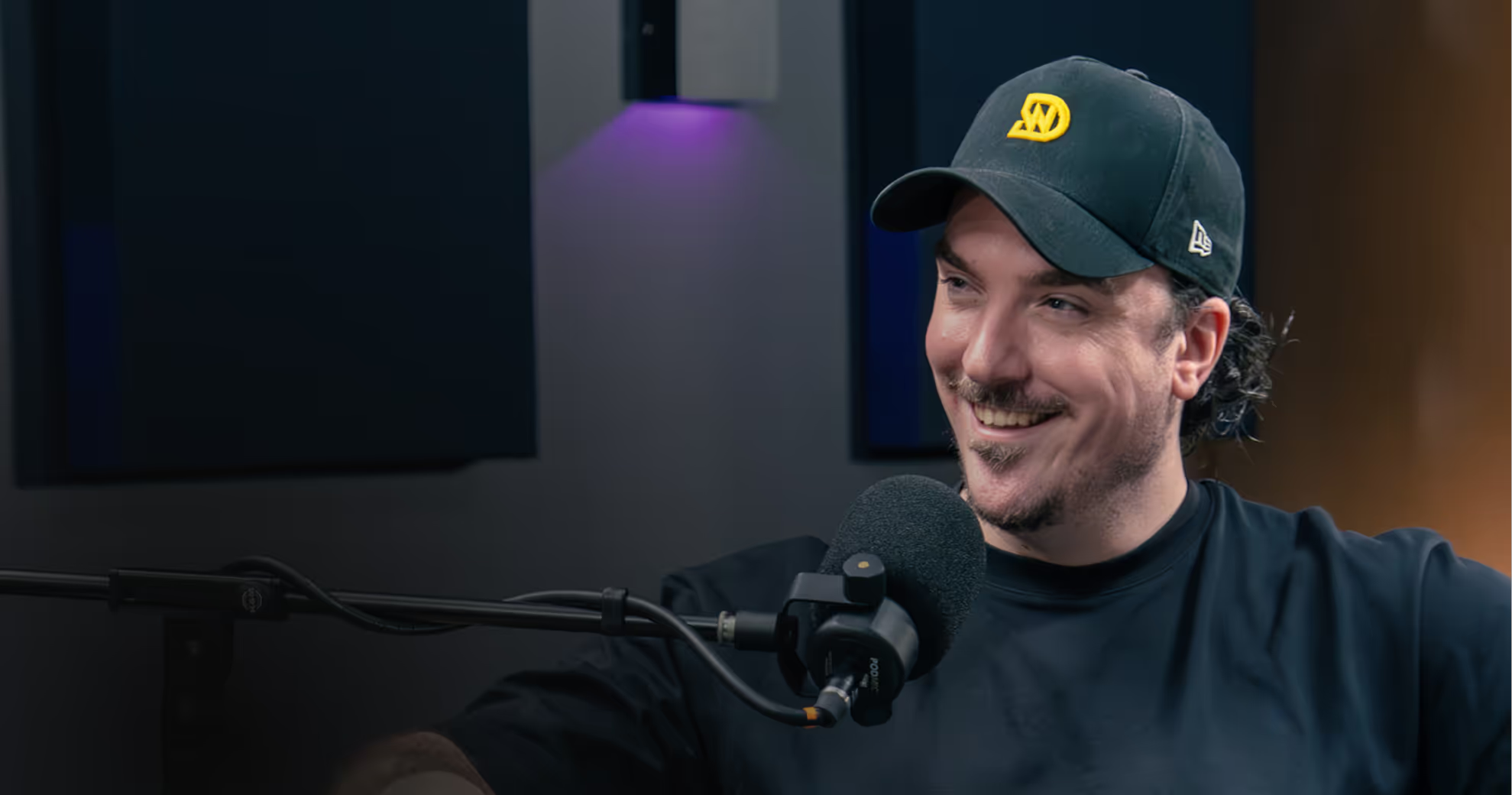
Work With Me
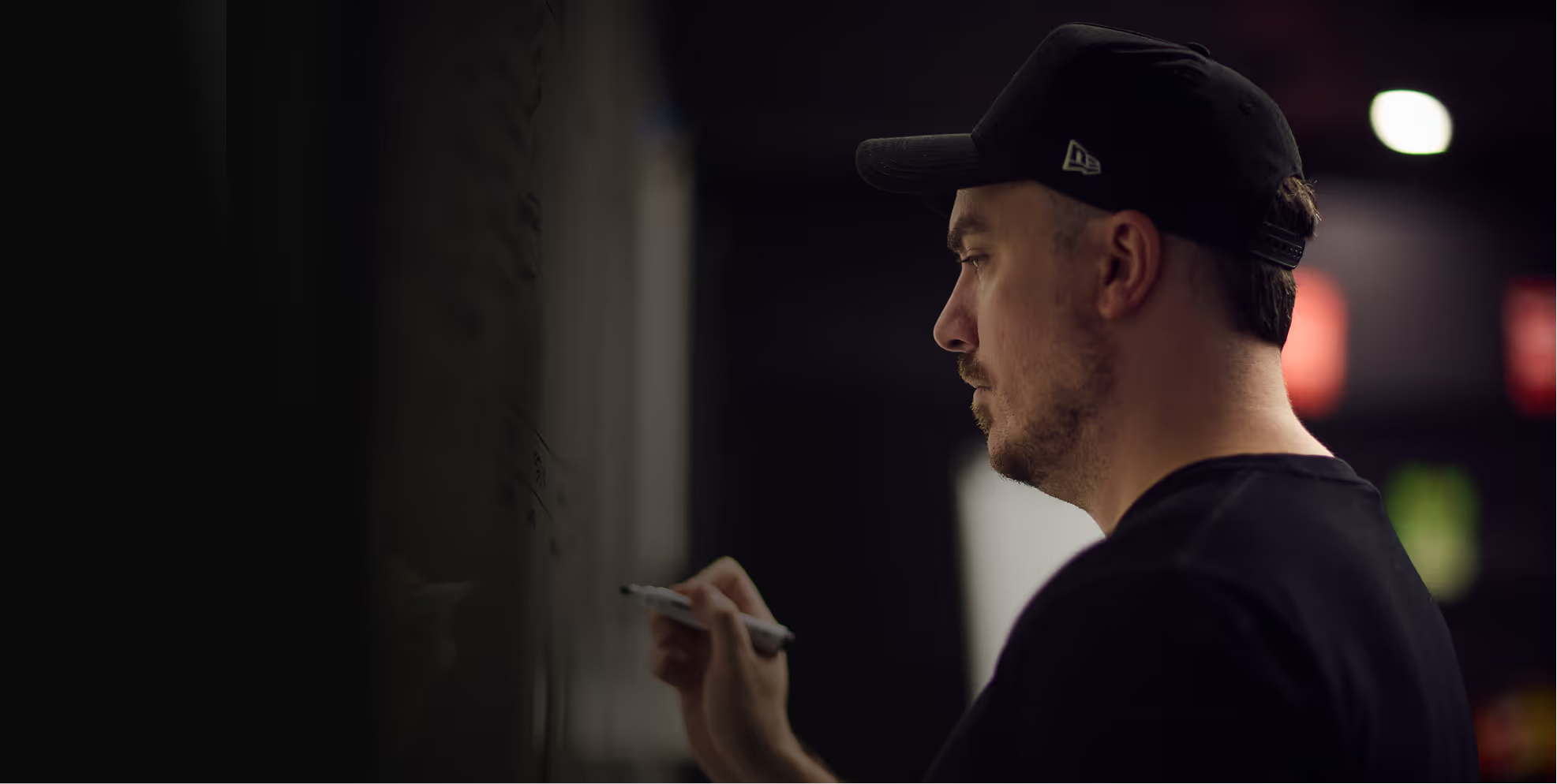
Enquire With Dain’s Team
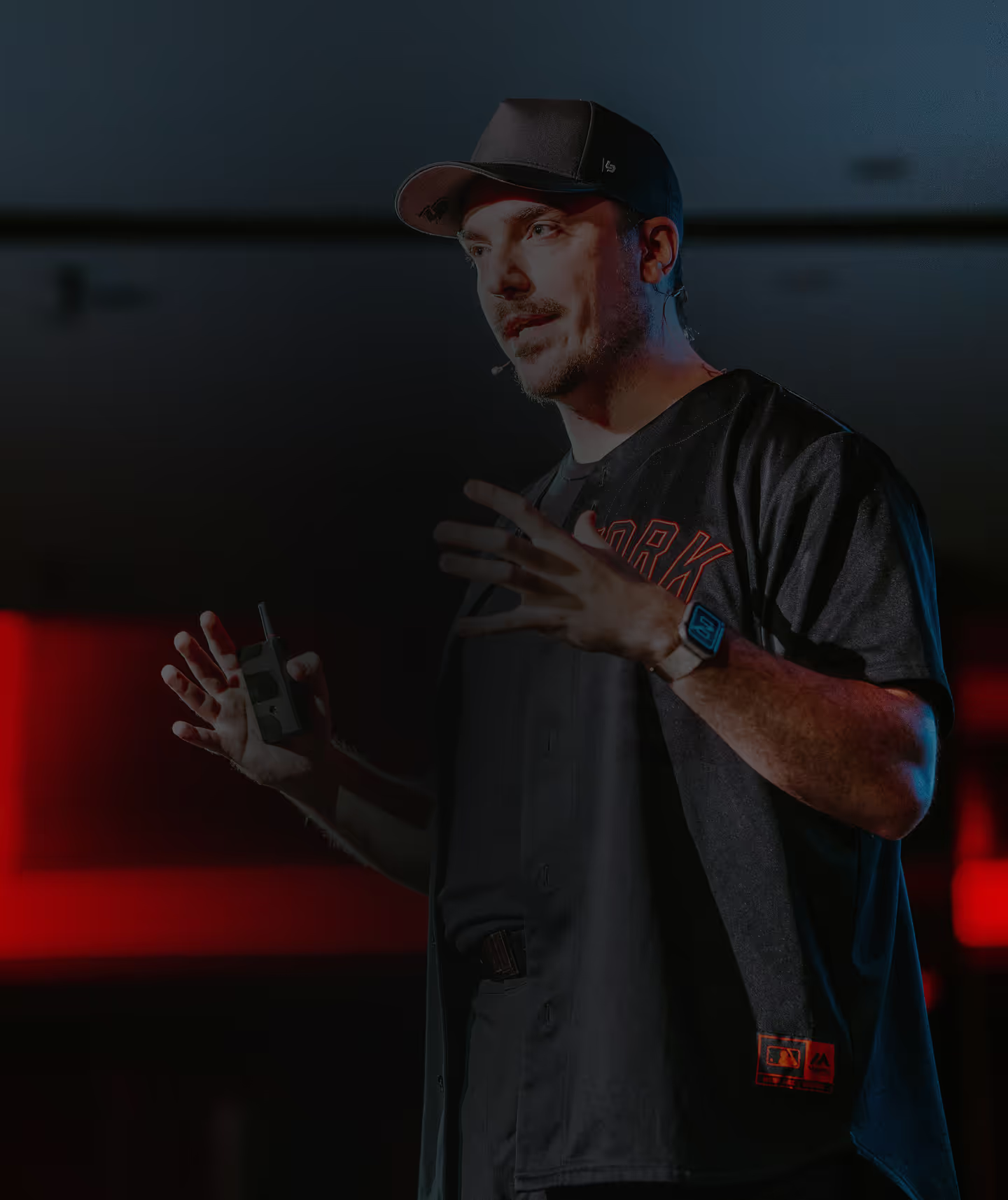
Enquire For Speaking

Let's Get You Branded
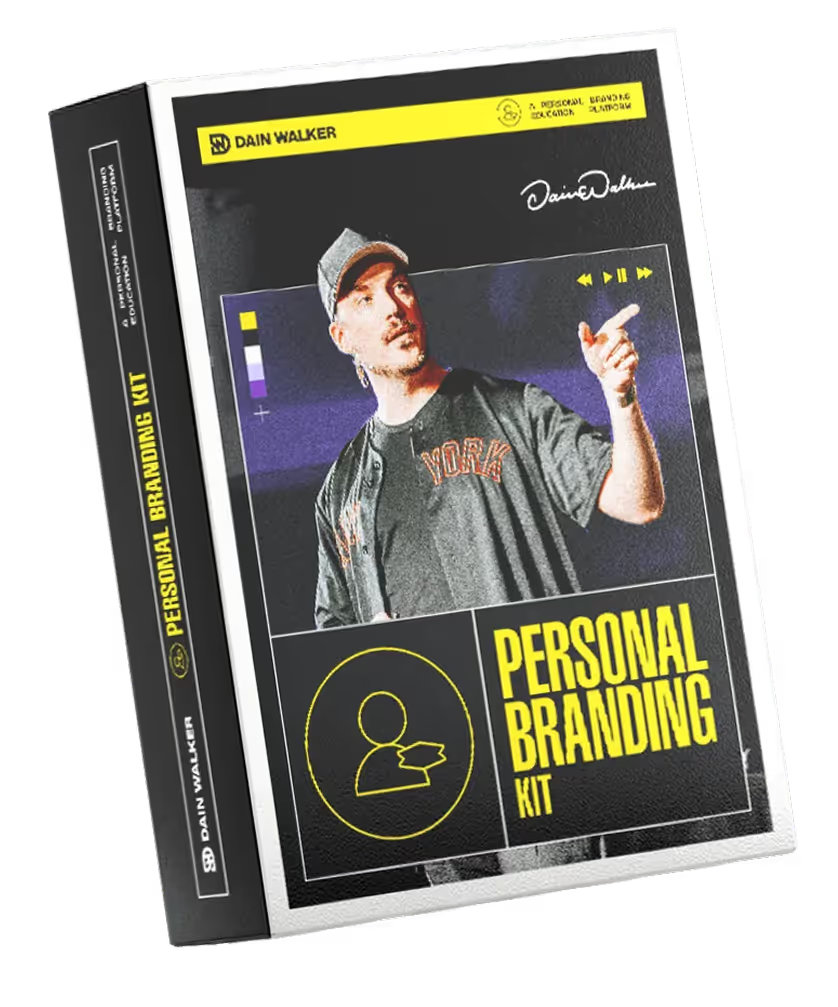
Apply to be a guest
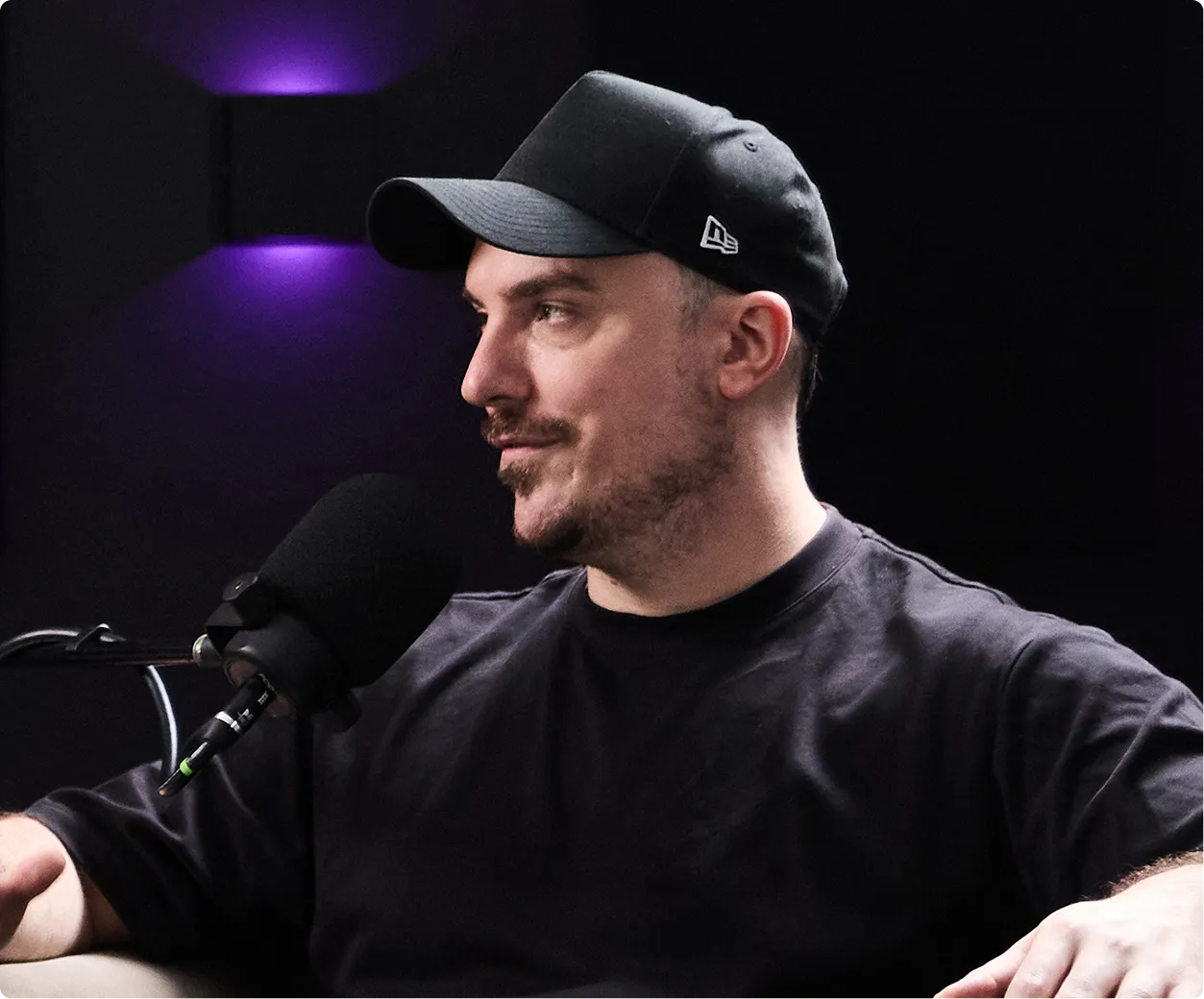
Dive into insights from industry leaders and experts.
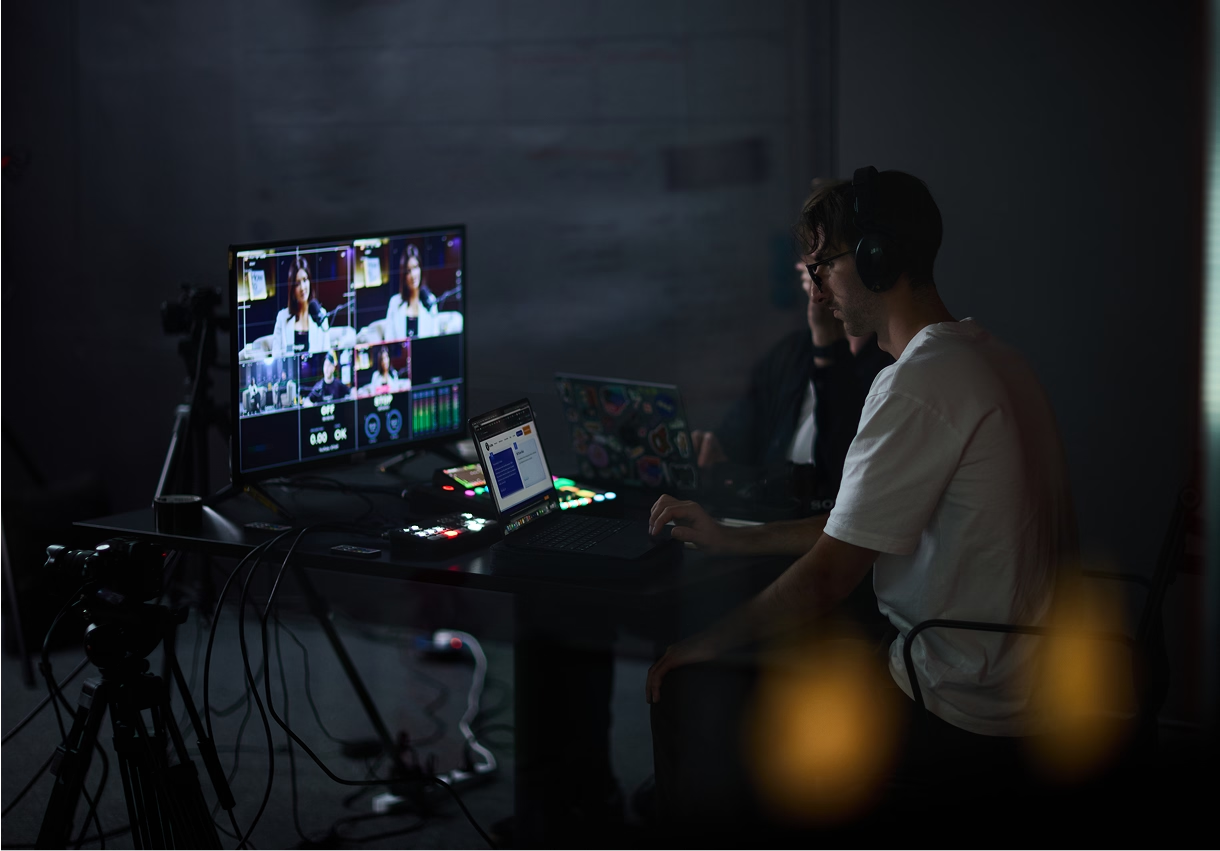
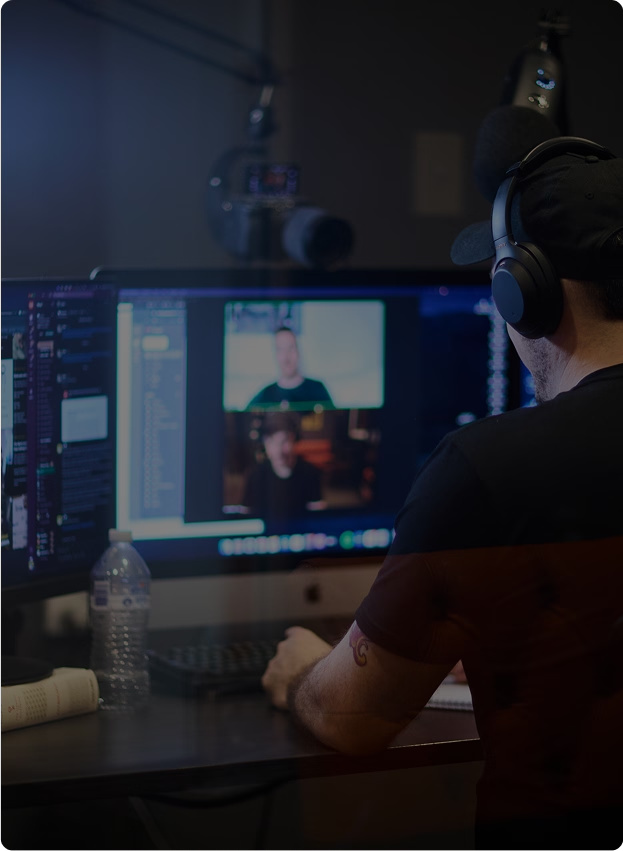
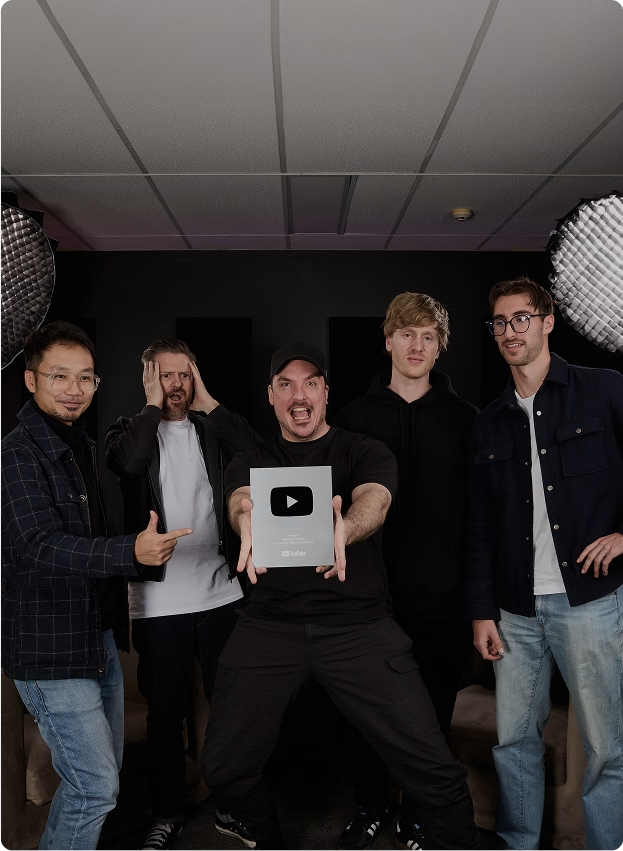
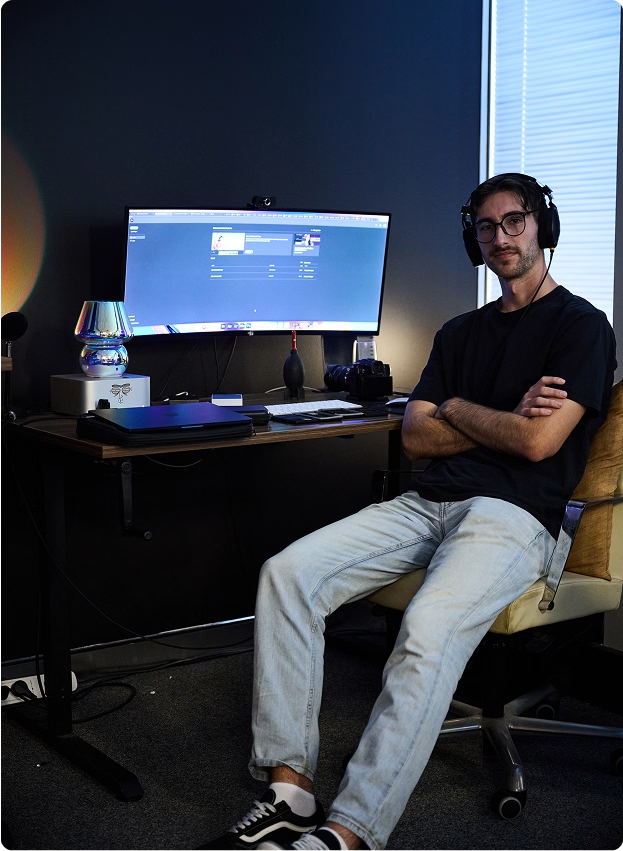
Stream now
Dive into expert advice and industry trends.
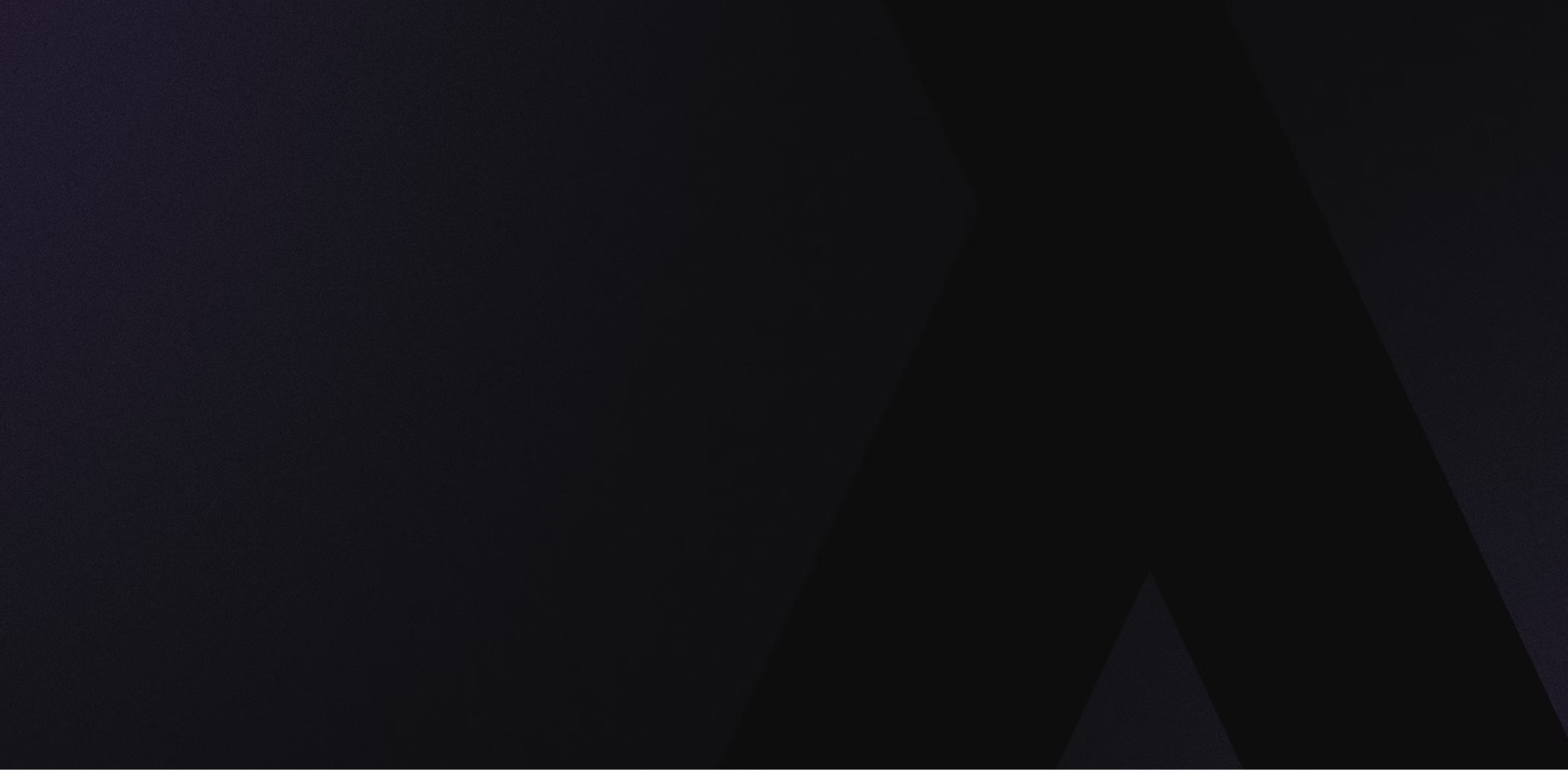

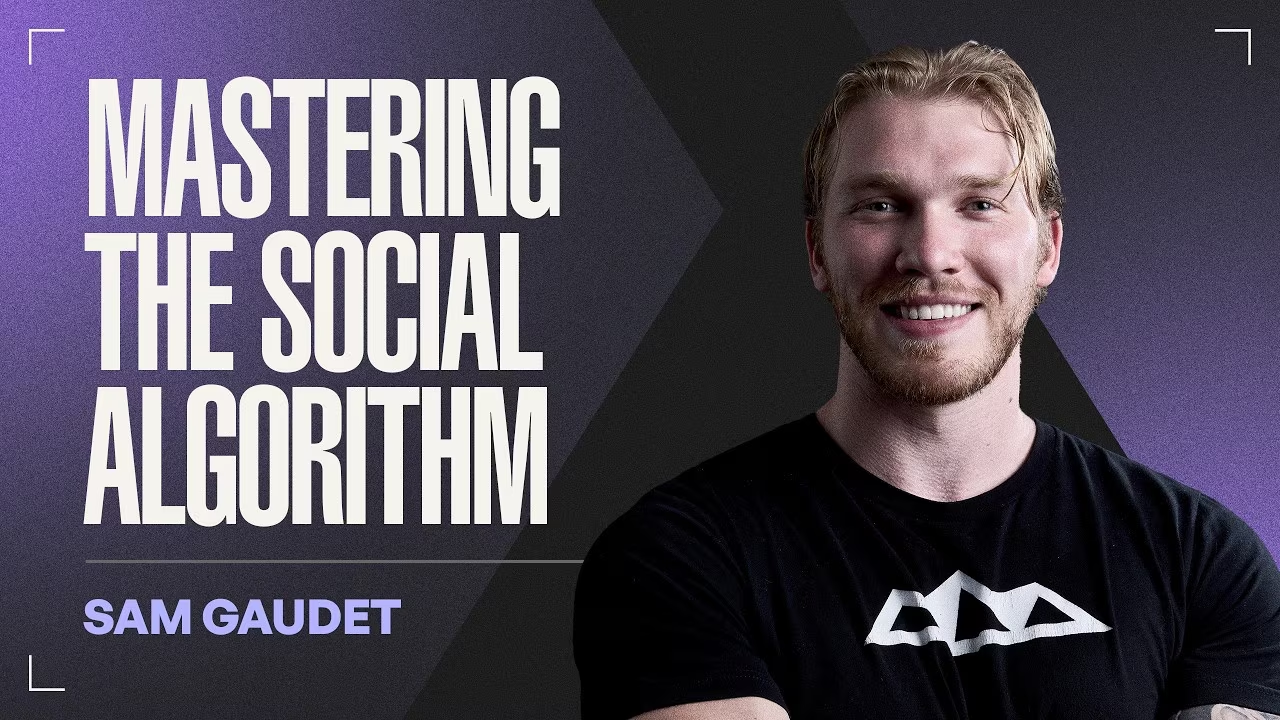
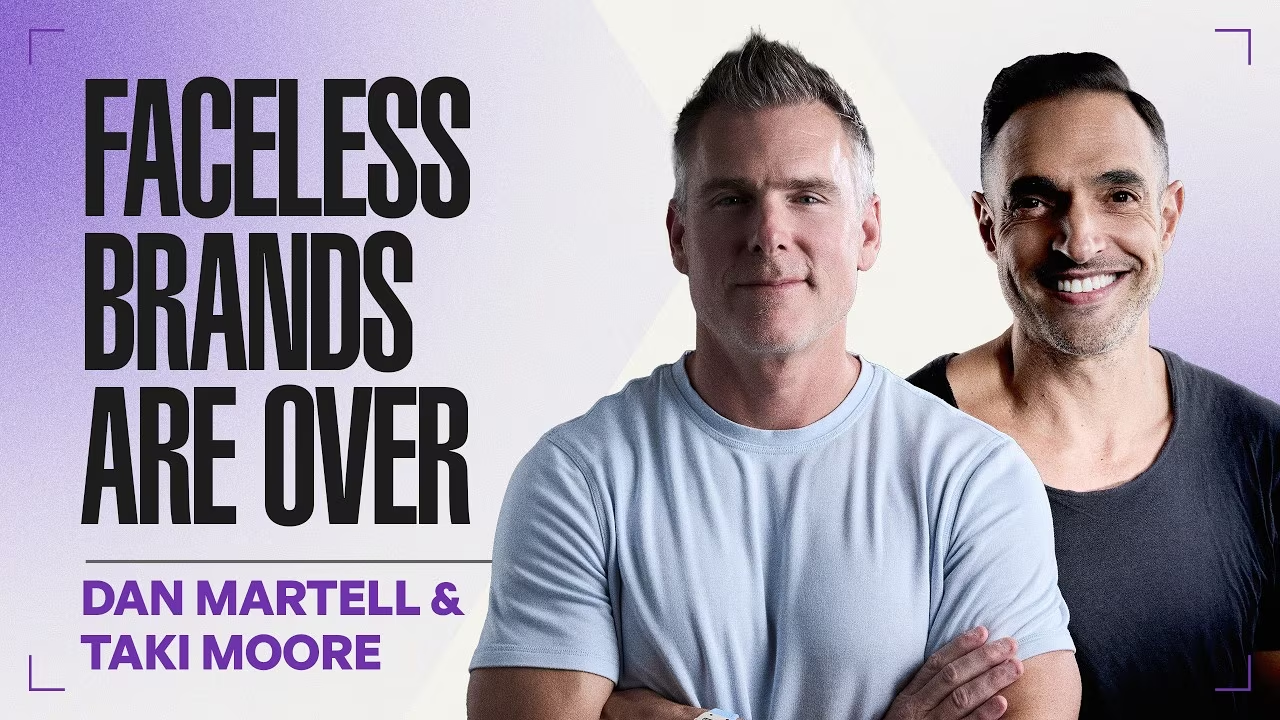
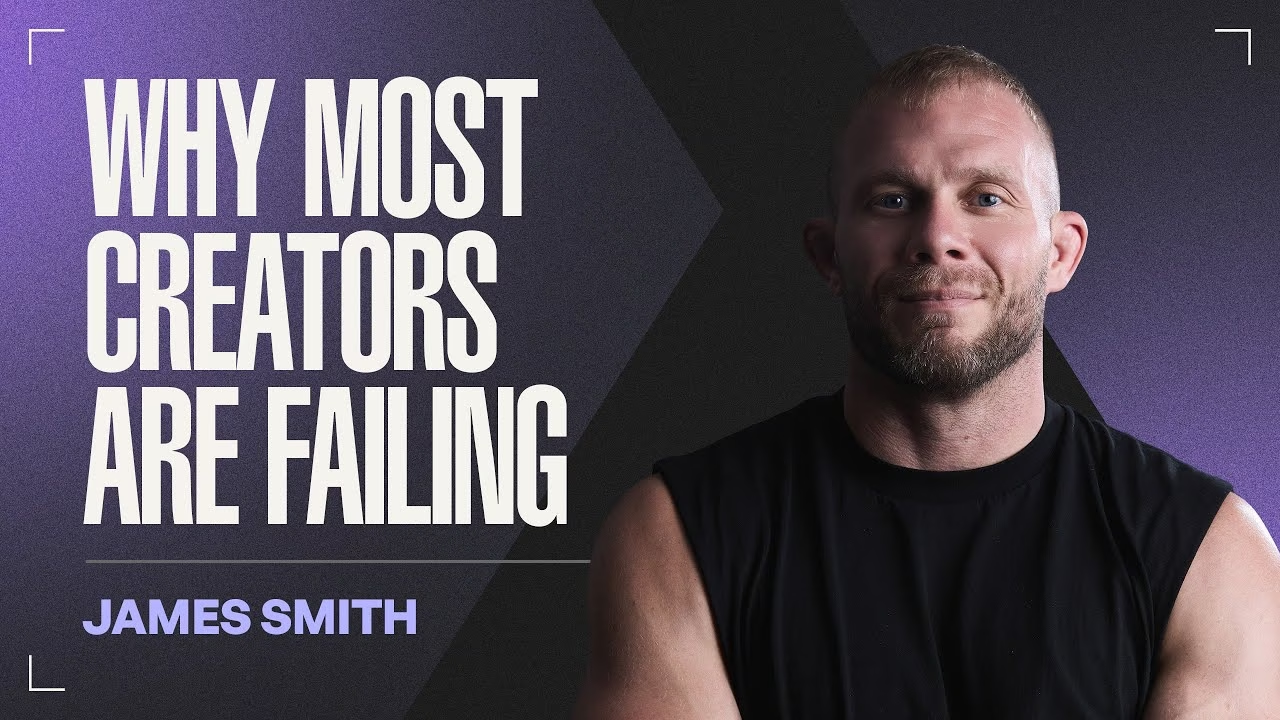
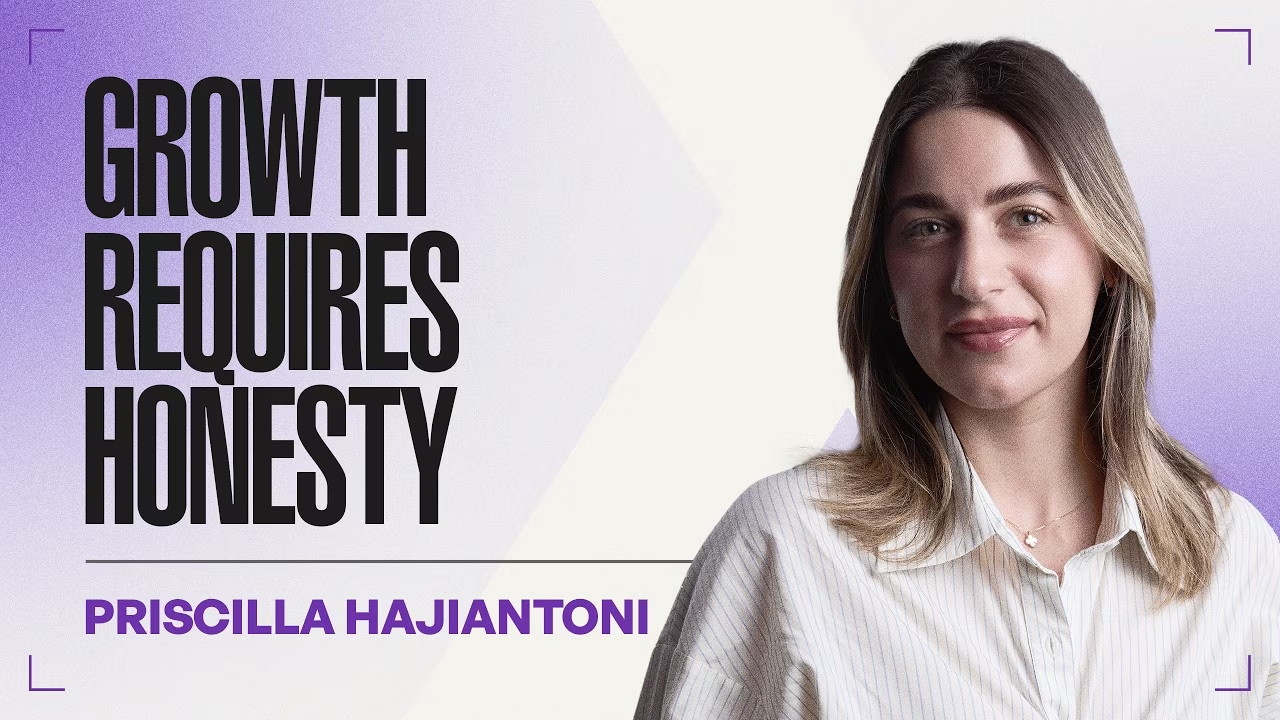
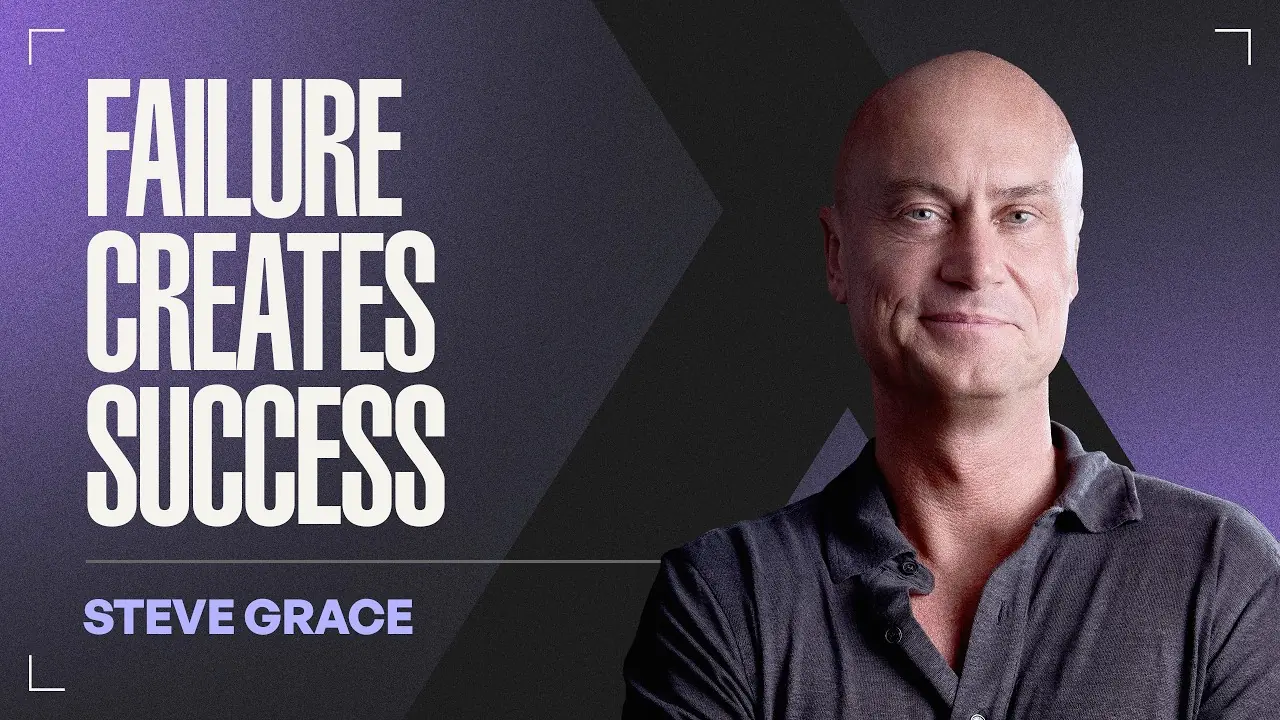
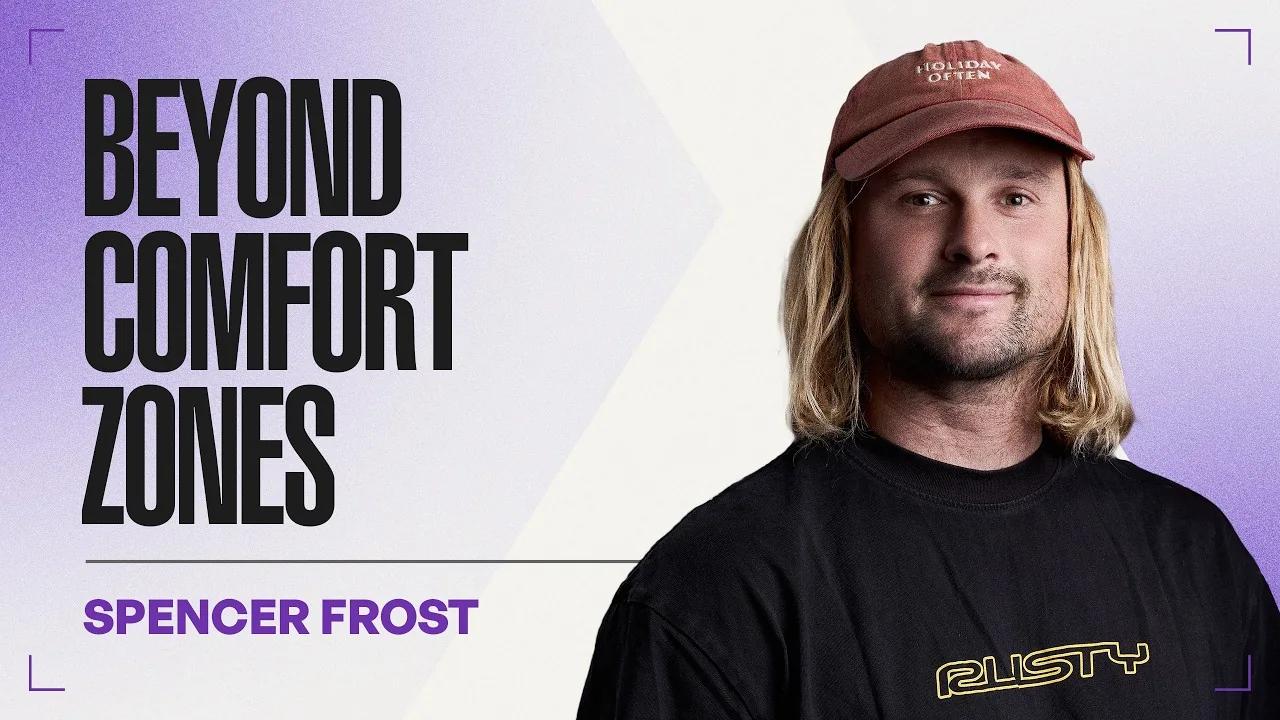
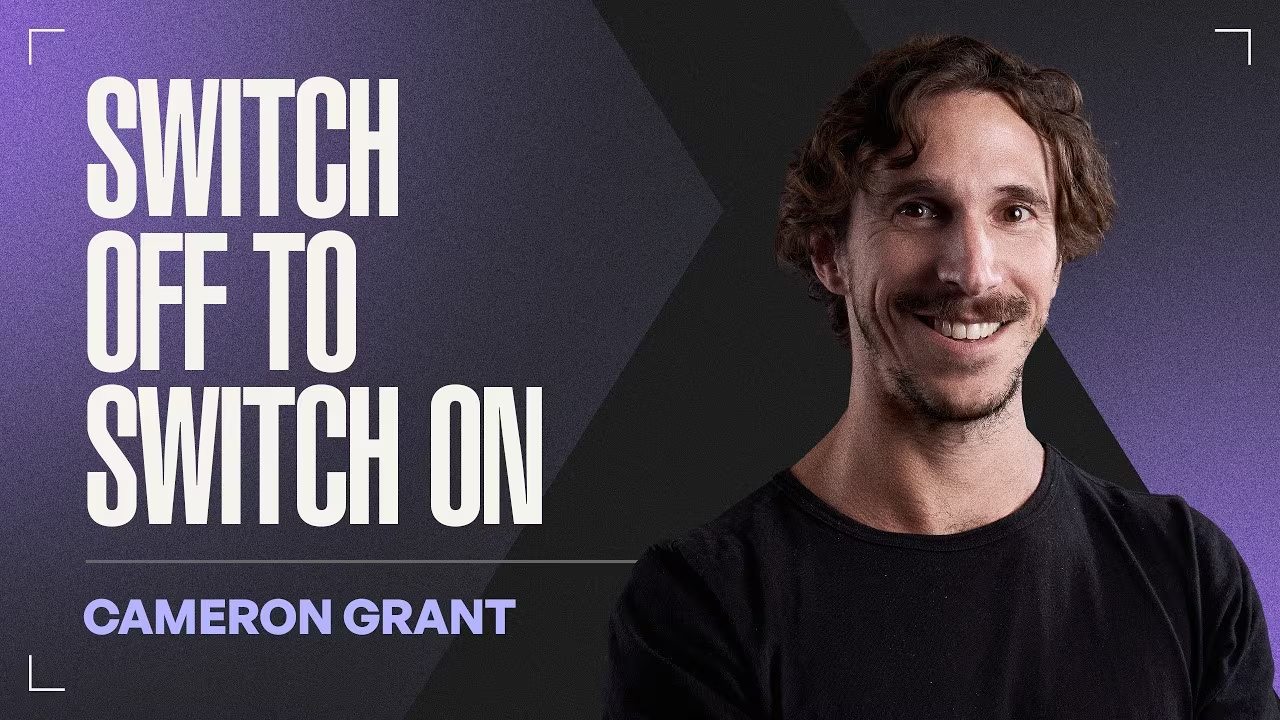
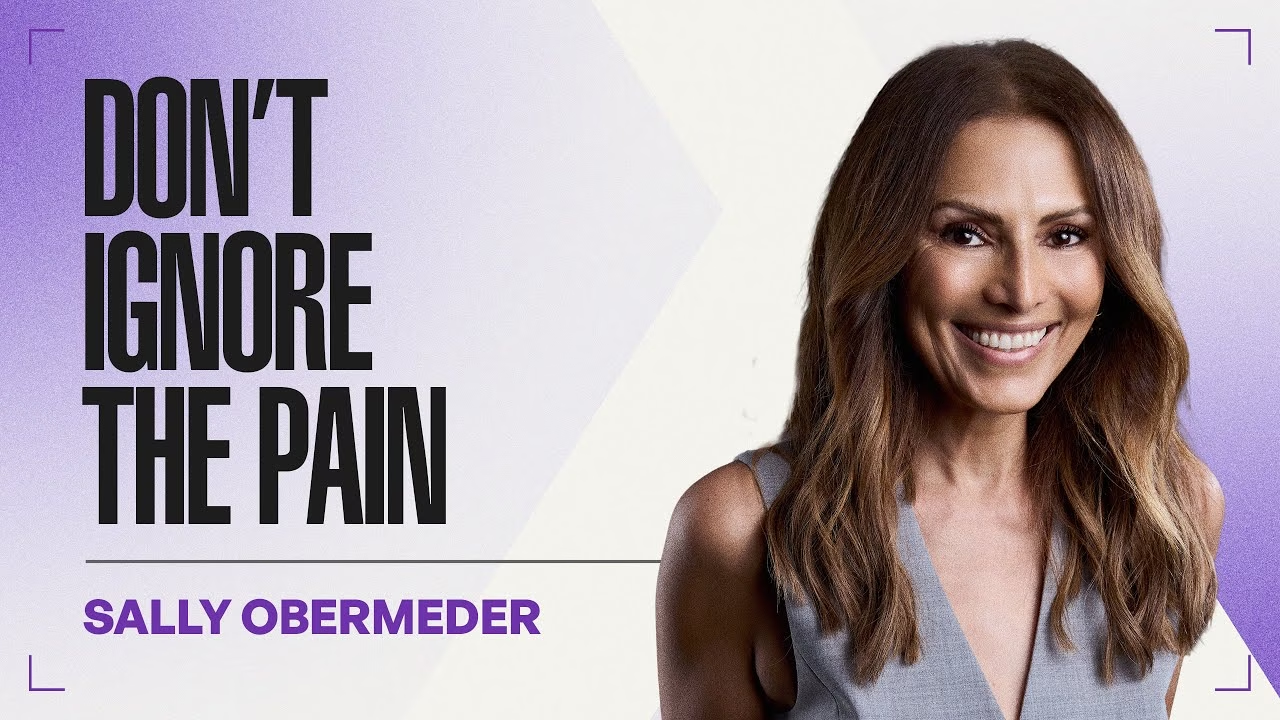
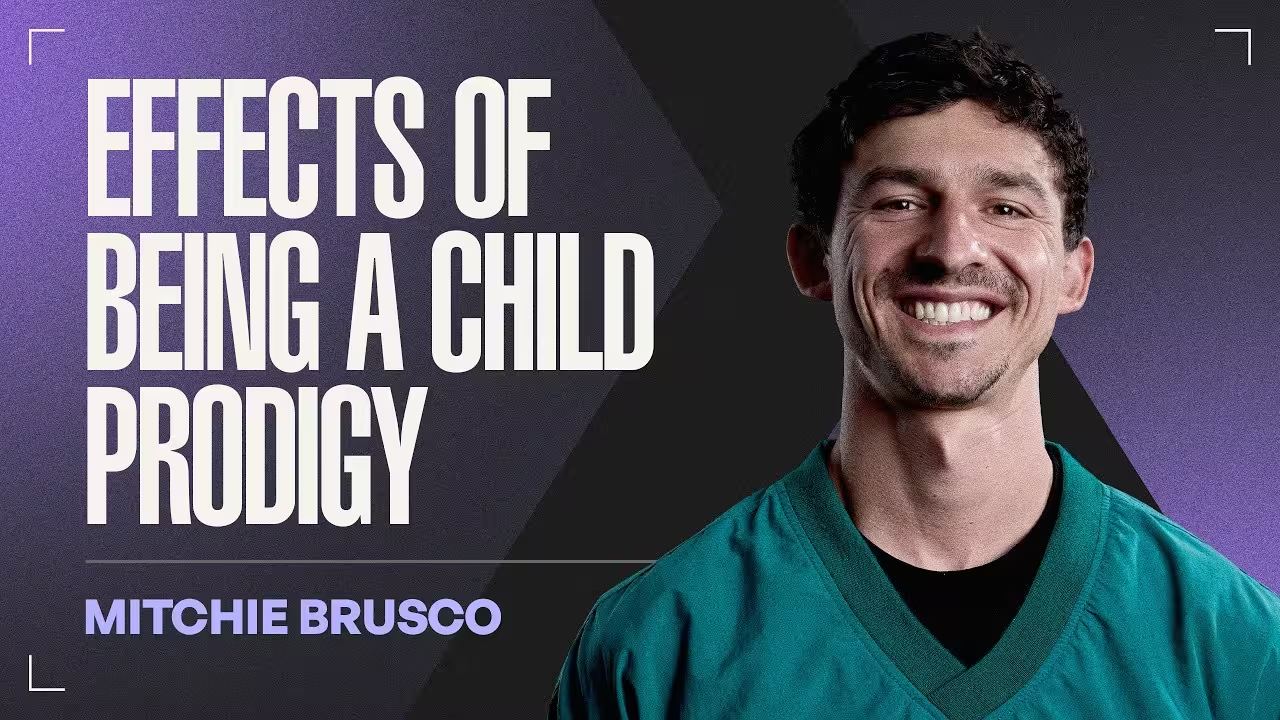
.avif)
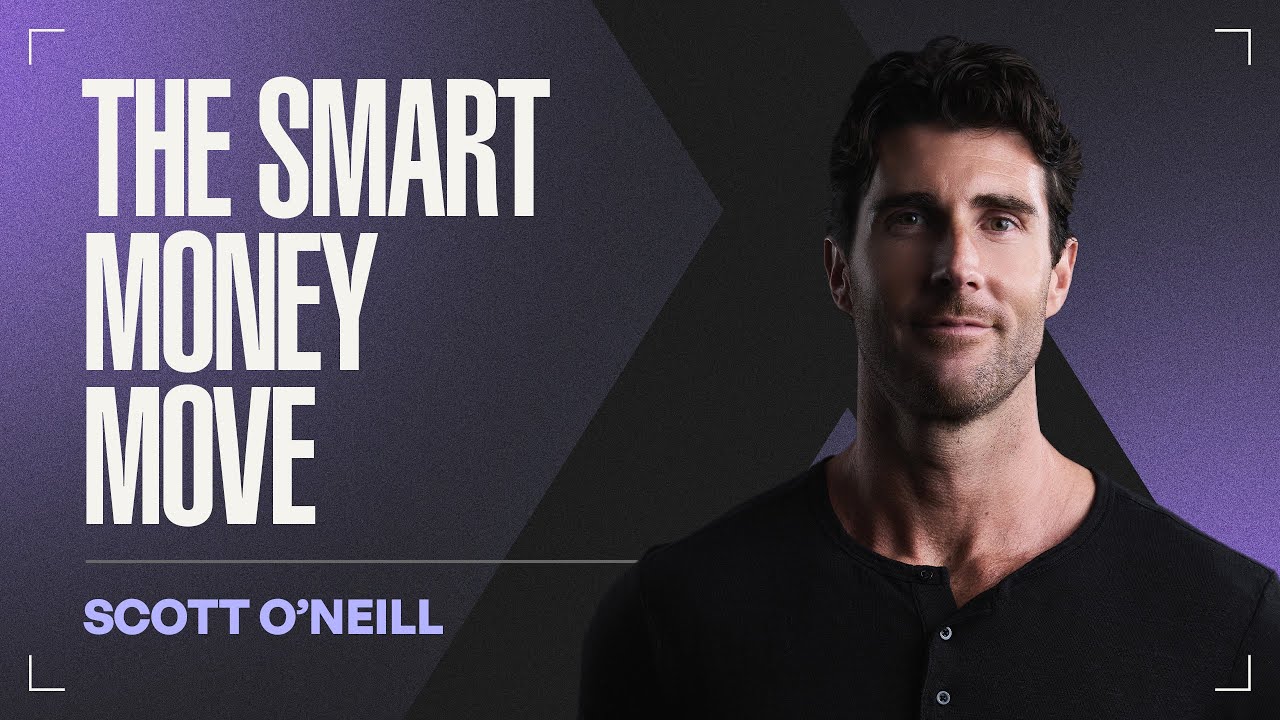
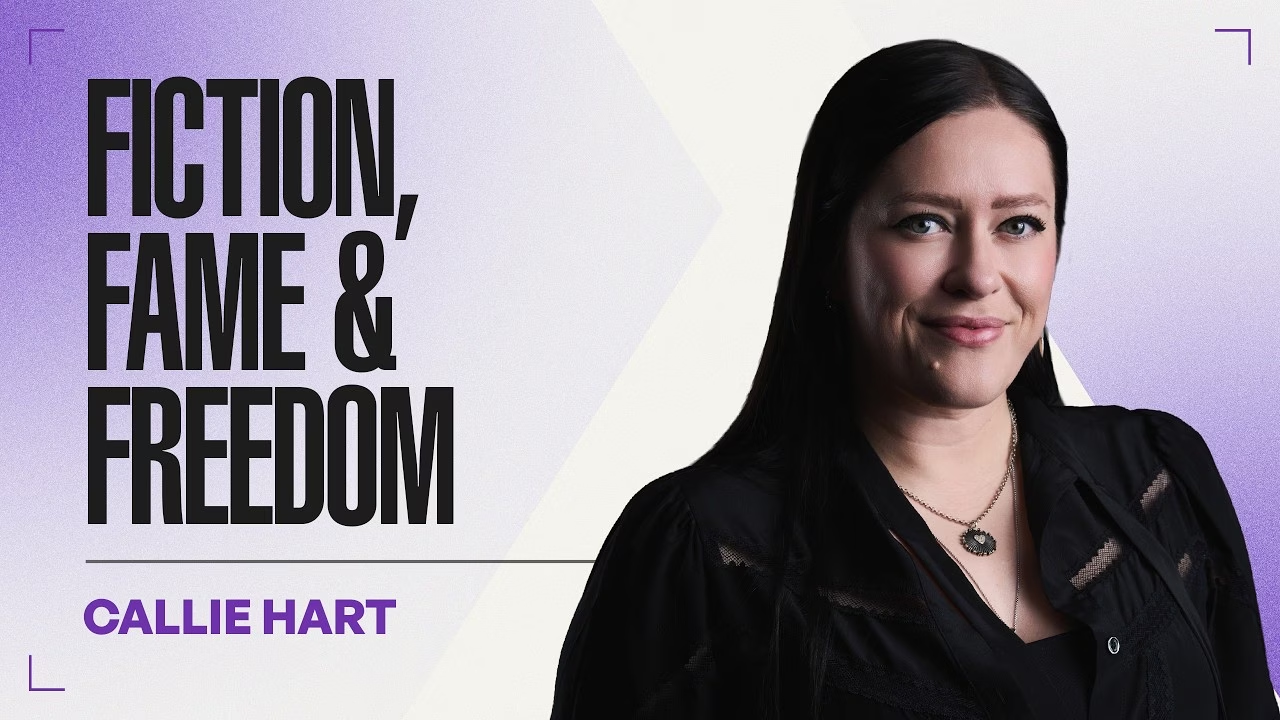

.avif)
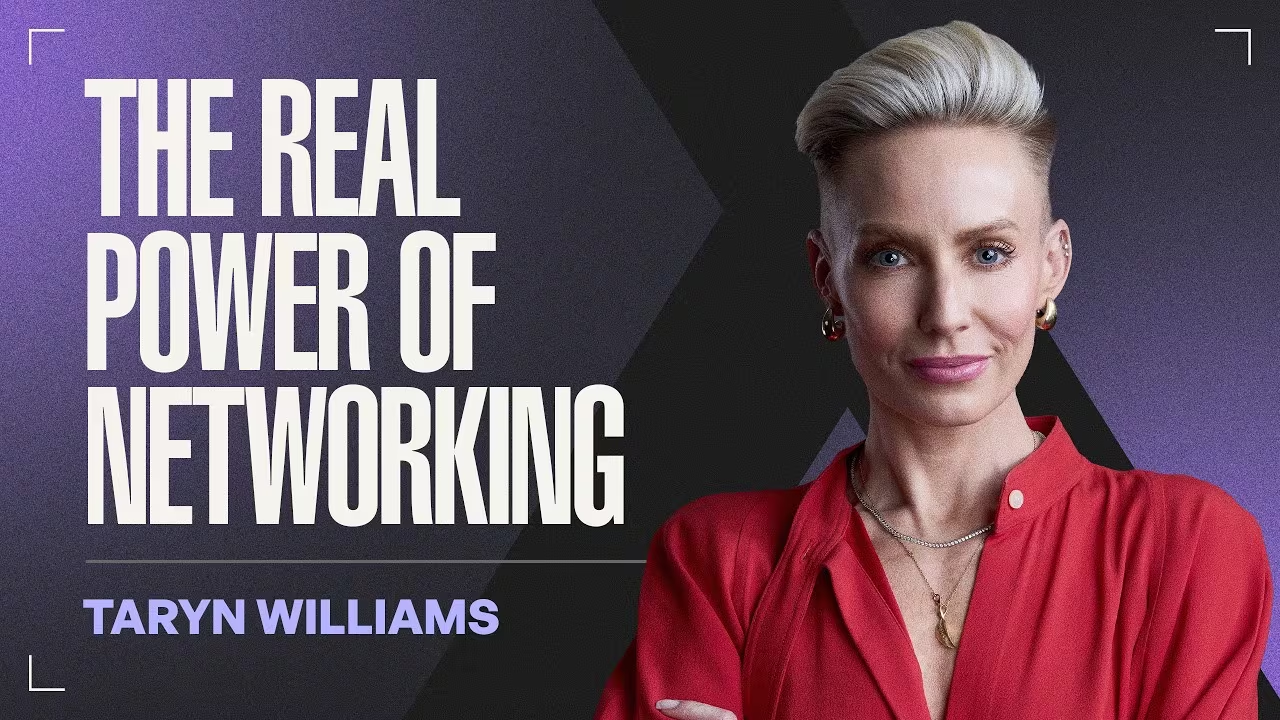

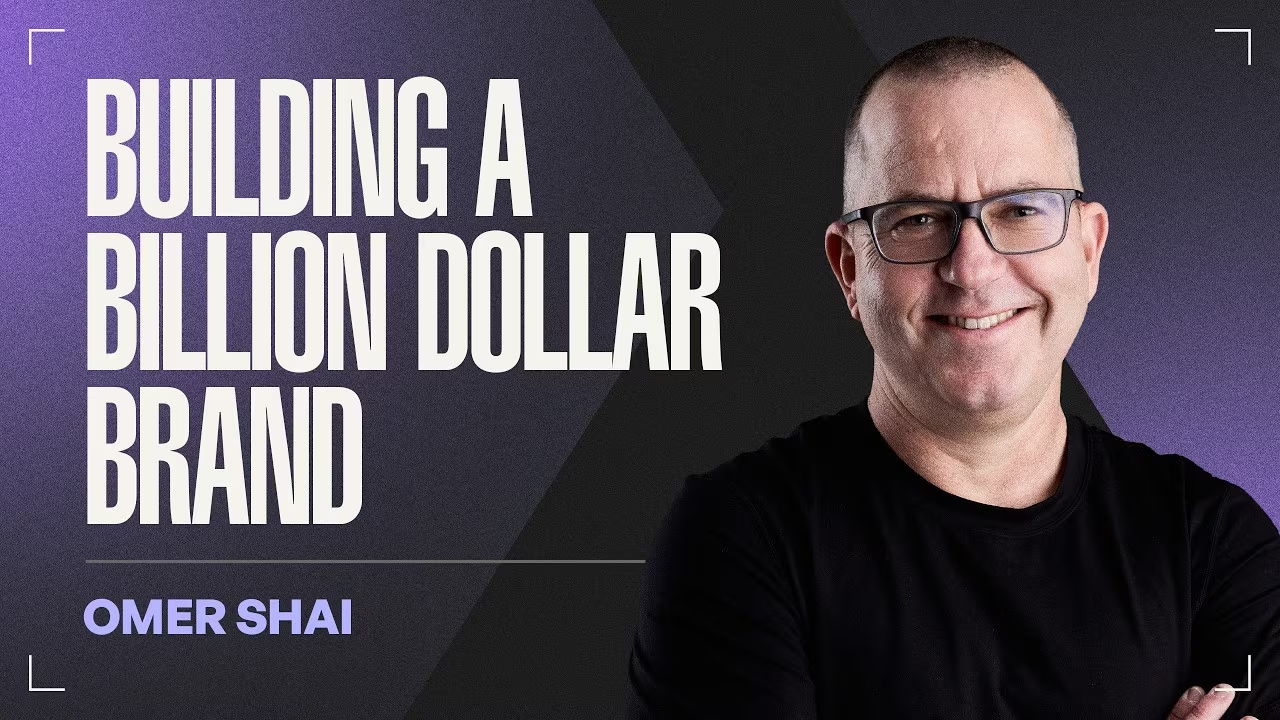
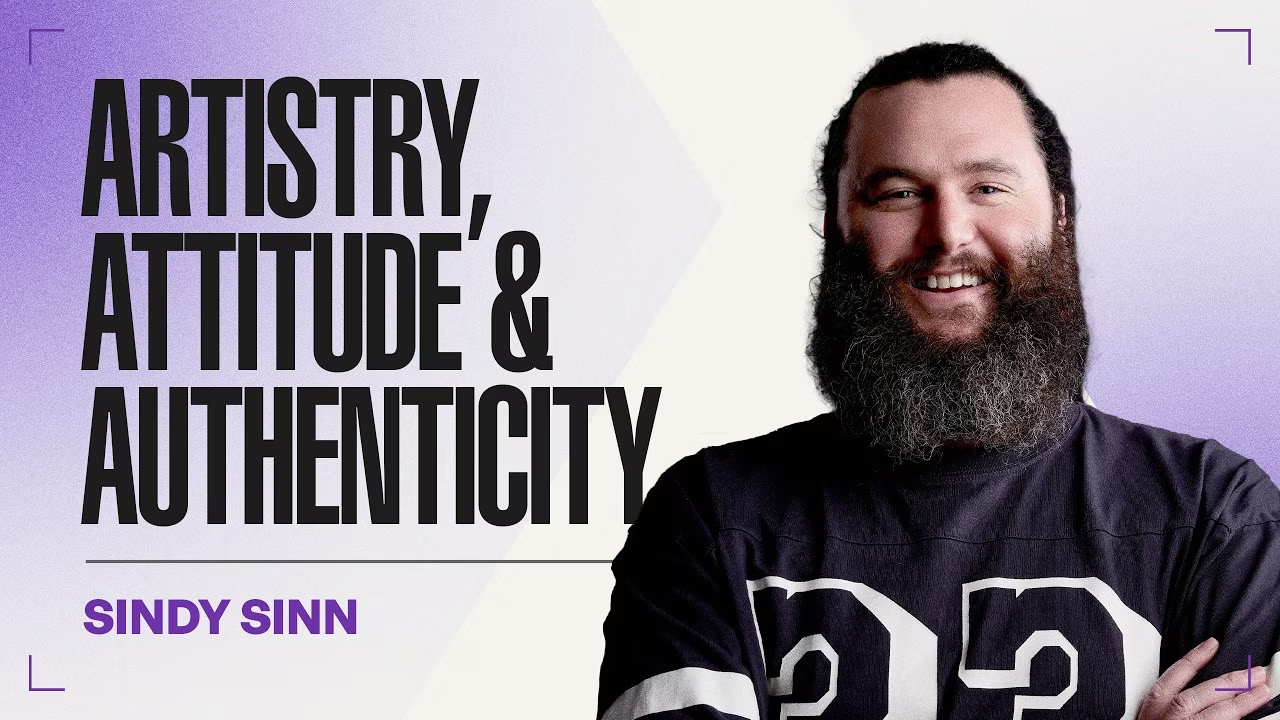
%20(1).avif)
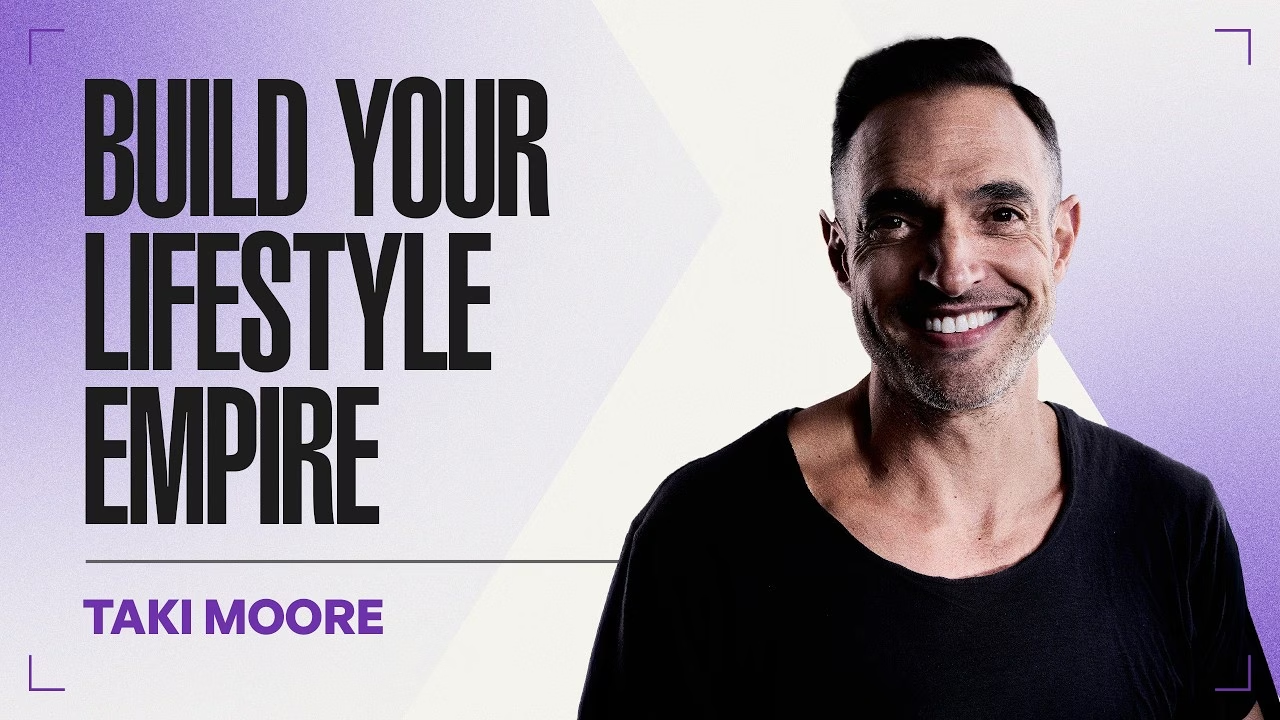
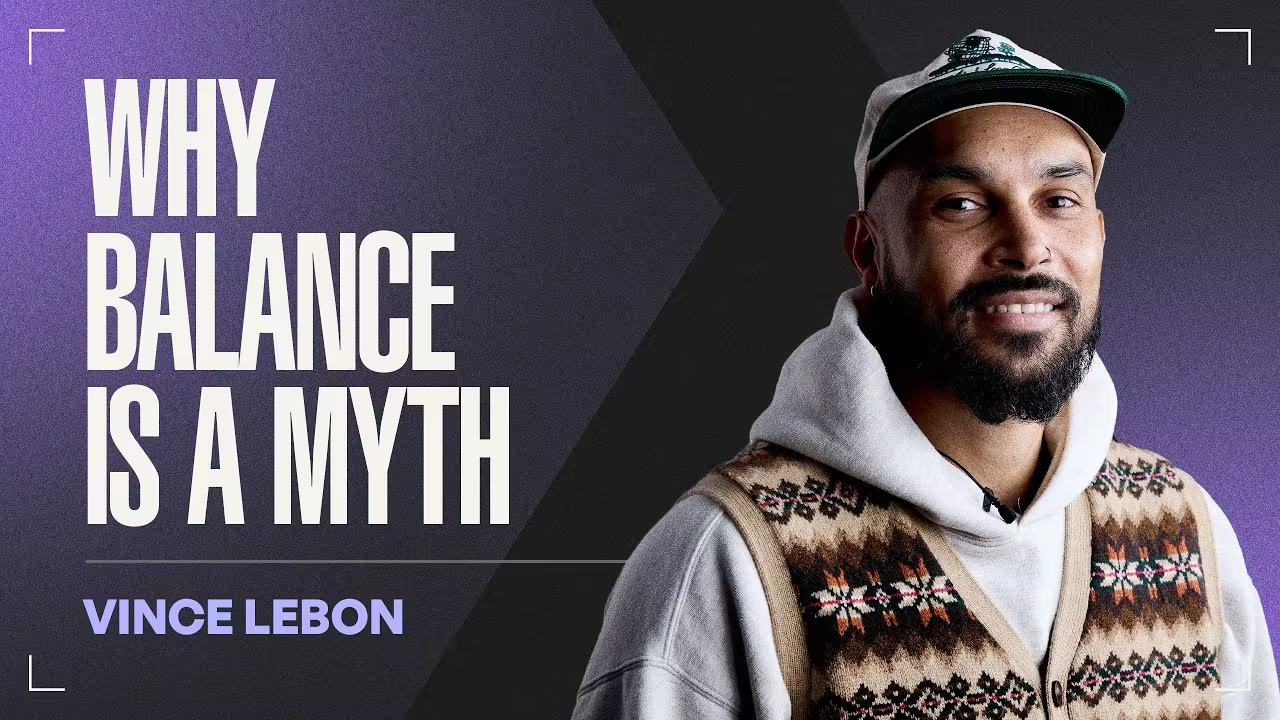
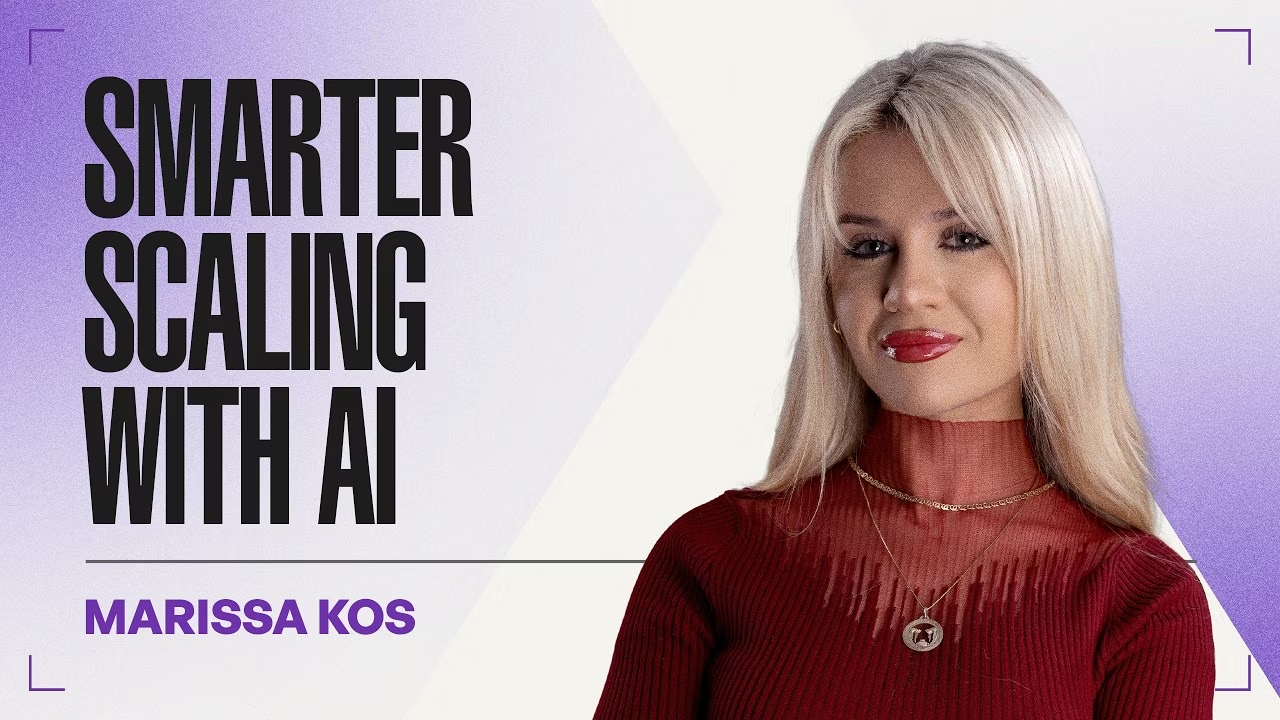
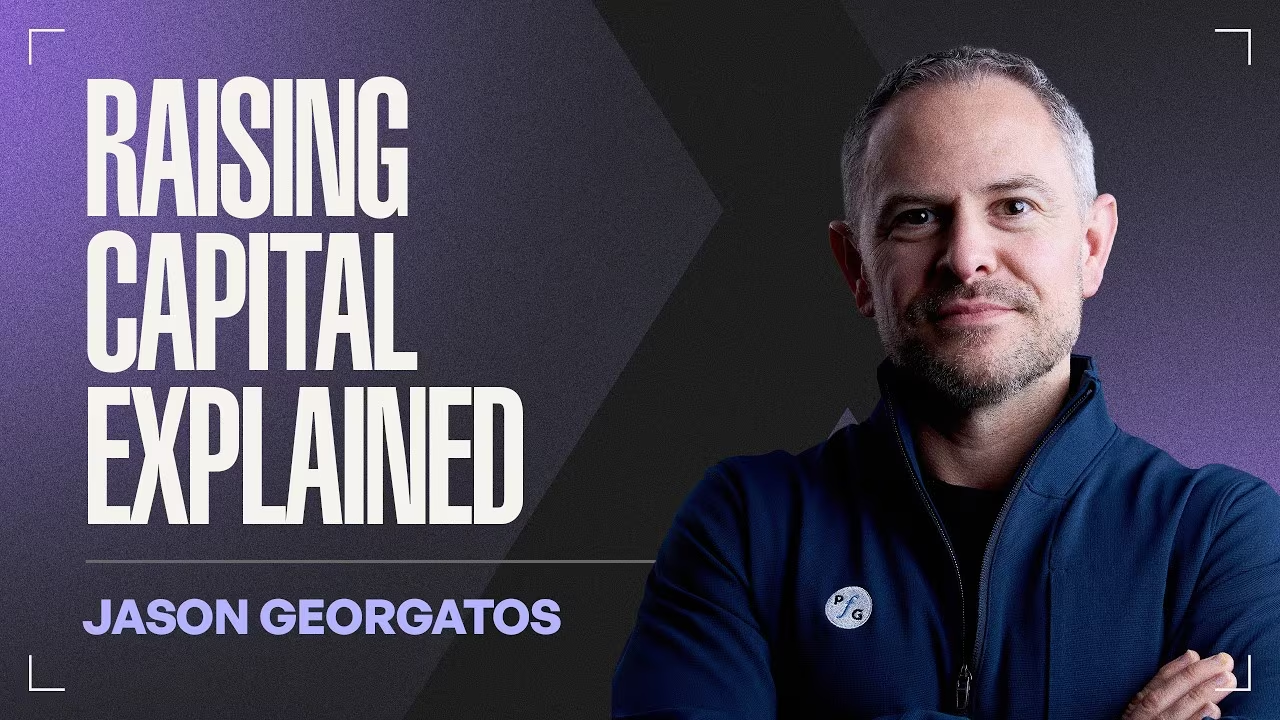
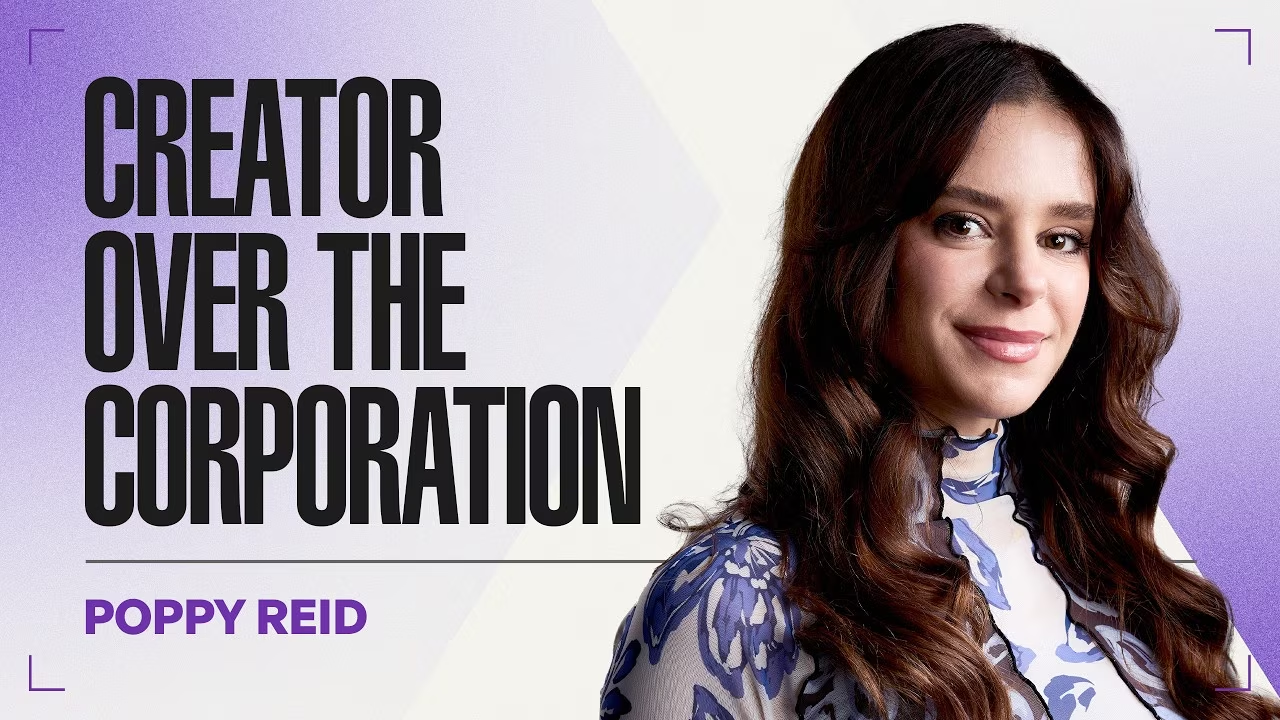
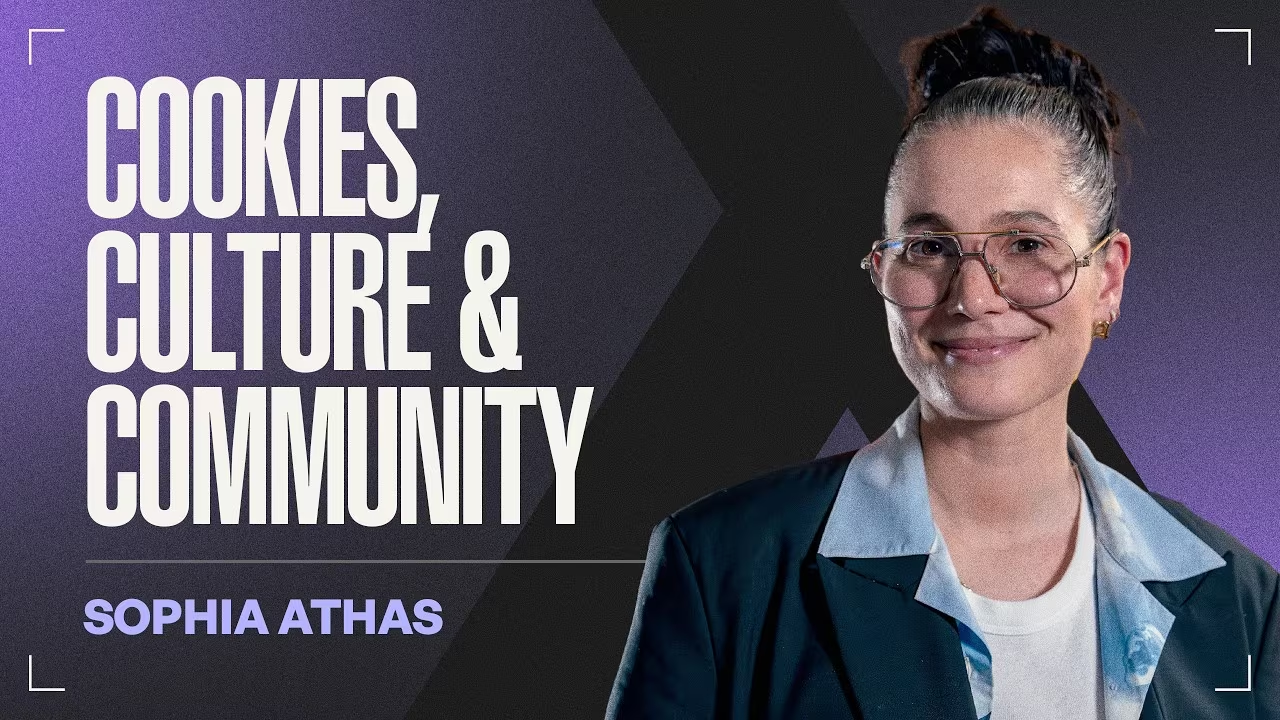

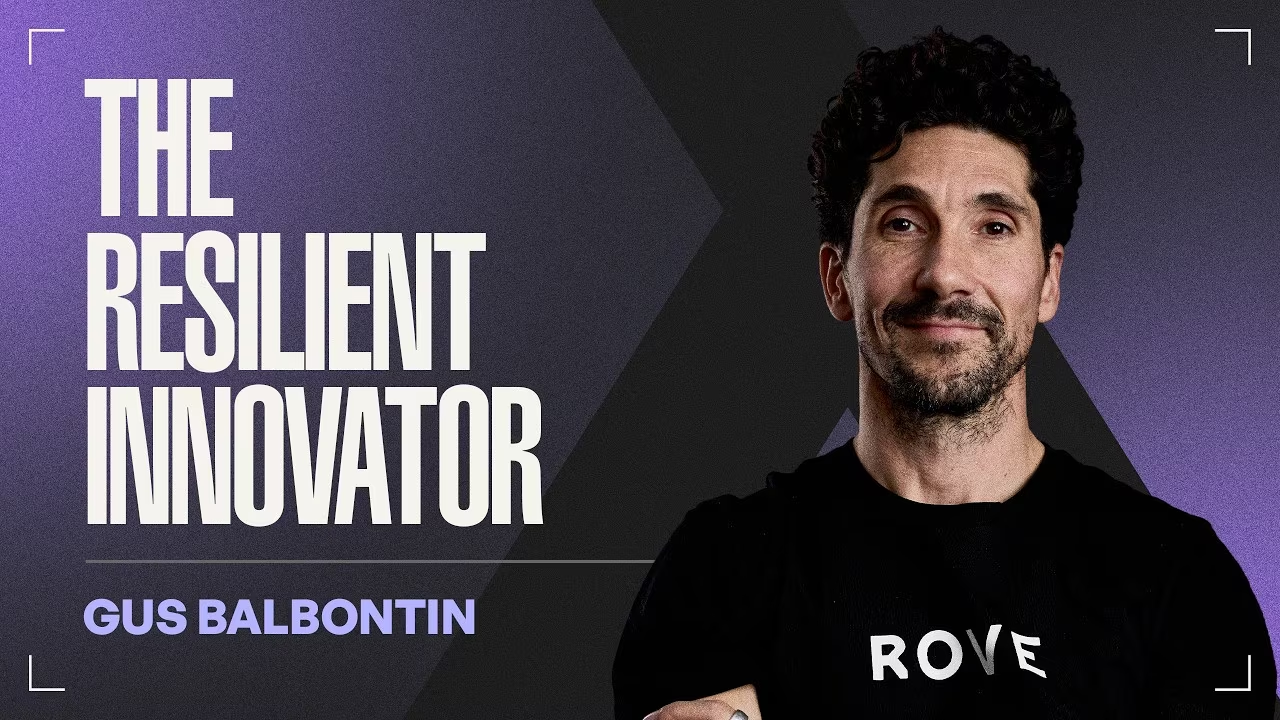
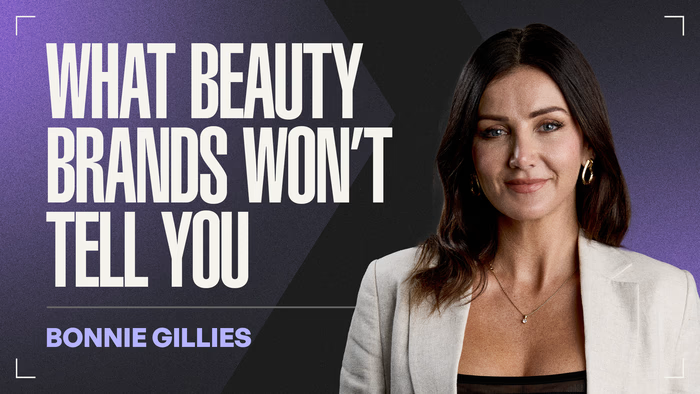


.avif)



